

85 Critical Thinking Questions to Carefully Examine Any Information
The ability to think critically will often determine your success in life.
Let’s face it. Every day, we are bombarded by news, social media updates, and an avalanche of information. If you take all of this at face value, it’s easy to be deceived, misled or ripped off.
That’s why it’s important to develop a mindset that focuses on critical thinking . This is a skill that needs to be developed in the classroom. But it’s also a valuable life skill.
With that in mind, the following post will share 85 critical thinking questions you can use to increase your awareness about different problems by carefully examining available information.
Let’s get started…
Table of Contents
What Are Critical Thinking Questions?
Critical thinking questions are inquiries that help you think rationally and clearly by understanding the link between different facts or ideas. These questions create a seemingly endless learning process that lets you critique, evaluate, and develop a depth of knowledge about a given subject. Moreover, you get to reinforce your viewpoints or see things in a new way.
We make decisions every day, whether at work or home. Adopting logical, rational, and practical approaches in addressing various issues requiring critical thinking is essential in decision-making. Therefore, before arriving at a decision, always ask yourself relevant questions and carefully analyze the matter’s pros and cons.
Critical Thinking Questions When in an Argument
When you make an argument using a critical thinking approach, you focus on justified claims that are valid and based on evidence. It helps one establish a strong argument.
- Do I disagree with the other person? Might the person I'm arguing with be misinformed on what they are saying?
- Would I be comfortable saying what I am telling him/her if I was in front of a group of people?
- What would happen if I lose this argument? Is engaging in this argument worth my time and energy? How will I feel if I lose?
- Is there room for ambiguity or misinterpretation? Are we arguing because I didn't make my point explicit? Should I take my time to understand his school of thought?
- Do I need some rest before saying something? Am I arguing because of other reasons other than the issues at hand? Do I need to take some time and cool down?

- Is it more important that I’m right? Am I trying to ask to prove an unnecessary point?
- Is this argument inductive, deductive, or abductive? Is it a weak or strong argument that I need to engage in? Is it compelling or sound?
- Is my opponent sincere? Given that they are wrong, are they willing to admit that they are wrong? Can they depend on available evidence, wherever it leads?
- Are my opponents only trying to shift their burden to me? What is the best way to prove them wrong without making them feel bad?
- Are the people I'm arguing with only interested in winning, or are they trying to pass some information across and help me discover the truth?
Critical Thinking Questions When Reading a Book
When you read a book, you probably ask yourself many “why” questions. Why is this a problem? Why did the character say that? Why is this important? The most challenging part of reading a book is assessing the information you are reading. These questions can help.
- If I learn only two things from this book, what will they be? How will they help me? How will I apply them in my daily life?
- What message are the authors trying to pass across? Are they making suggestions or providing evidence for their arguments?
- Given that almost every book is about solving problems, what is the most prevalent issue that the author is trying to solve?
- What is the author’s writing style? What strategy or master plan does the author employ to convey his/her main ideas throughout the book?
- Do I have background information about the book’s topic? If so, how is what the author is saying different from what I already know?
- What didn’t I understand from the book? Should I re-read the book to understand everything the writer is trying to convey?
- Which sections of the book do I love the most, and why? Generally, do I like this book? Should I look for more books that are written by the same author?
- If I had a chance to meet this book’s author, what questions would I ask him/her? What would I tell the writer about the book? Is it a great book worth recommending to your friends and family members?
- Who are the main characters of the book? If there is only one main character, what overarching goal does the character accomplish?
- In what ways did the protagonist change from the start of the book to the end? What caused the changes? Was the protagonist reckless in some ways? Which ways?
Critical Thinking Questions to Spot a Scam
Asking questions when you feel that a fraud or a scam is being presented to you is a good way to stretch your critical thinking muscles. Are you being emailed or messaged by a stranger? Or maybe there are other red flags you are unsure about. If so, ask these questions.
- Does it seem to be too good to be true? Is this stranger pushy or trying to lure me into making a poor decision?
- When trying out online dating: Is my new “friend” professing strong feelings towards me although we’ve only interacted for a few hours?
- Why is a stranger calling me to ask about my Social Security Number (SSN), personal contact information, or bank details while claiming they are from the bank or a phone company?
- When buying products online, why does the seller ask me to pay for goods using an insecure payment option like Bitcoin or money order?
- Does the email I have received have any spelling or grammatical errors? Is the language used overly formal or informal?
- If I do a quick search about the exact words of the email I received, does Google indicate it's a fraud or scam?
- Why should a stranger manipulate me using obvious questions like “Would you want to be rich or poor?” While they already know the answer?
- Is the email asking me to download an attachment? Or click a link to some insecure website?
- Is the person trying to make me feel selfish or guilty for not sending them money, whether for a donation or buying a product?
- Is the stranger portraying a sense of urgency and using pressure tactics? Are they telling me that their family member needs urgent medical attention?
Critical Thinking Questions About Your Life
It can also help to ask yourself a few critical thinking questions about your life. This way, you can gather basic information and uncover solutions to problems you might not have otherwise thought of.
- Where do I wish to be in a few years, probably two, three, or five years? What short-term and long-term goals should I set?
- What have I achieved so far from the time I set my previous goals? What should I be grateful for?
- Do I have any values that guide me in life? If so, what are these values? Am I always true to these values?
- Am I always worried about what people around me think? Can I act independently without the need to meet social expectations?
- What should people say about me at my funeral? Would they talk about how good I made them feel or how rich and flashy I was?
- If I wasn't afraid of anyone or anything, what would I have done? What if I didn't have any fear in me?
- If today was my last day, what extraordinary thing would I do? Can I do it right now?
- What should I do with the things that matter the most to me?
- What things will make the greatest difference in my future life if I take action now?
- How should I react when I feel unwanted by the people I love the most? Should I tell them?

Critical Thinking Questions for a Debate or Discussion
When you are in the middle of a debate or discussion, you need to know that what you are saying is fact, have evidence to support your claim, and position yourself as an expert in what you are saying. Here are some critical thinking questions to ask when you are in a debate or discussion.
- Is there fairness in this discussion? Is the moderator supporting one side? Do they want to make one side look stupid or wrong?
- What is the aim of this discussion? Is there a major problem that needs to be solved? If so, how can I help solve it?
- Who are the people affected by this discussion? If they were here, what would they say?
- Do my views on this discussion matter? If I raise my point, will I be redundant?
- What am I supposed to learn from this debate, and how can I use what I have learned in my daily life?
- Does the audience seem to be biased towards one side? Are they booing one side? What can I do even if it's our opponents being booed?
- Who are the discussion panel members? What views have they held about this kind of discussion or any other related discussions in the past?
- How can I make my point without being ambiguous? Before I speak, should I take down some notes to avoid any confusion during my speech?
- Am I ready to apologize if I make a mistake during the discussion? If so, what are the limits?
- What information does my team, or I need before this discussion?
Critical Thinking Questions About Lying
Admitting when you are wrong, choosing not to cheat, and sharing constructive feedback are all ways to show your honesty. Here are some critical thinking skills to ask regarding lying.
- Will the lie hurt those I am telling, or will it help them? What if being honest might cause my friend unnecessary pain?
- Should I be the one telling this person a lie, or I let someone else do it?
- Will I be the one hurt if I tell this lie? Will my friend feel I am a betrayer? Will it affect our friendship?
- Do they answer my questions in detail, or are they always trying to ignore and dodge the main problem?
- What if I ask these people the same question using different terms and wording? Will they give me the same response?
- Did the tone of my friend suddenly change after I asked him/her this question? Do they sound louder, faster, or slower compared to how they usually speak?
- Does this person have something to gain by lying to me? What is their motive?
- Does this person take a sudden pause or hesitate more than usual when responding to my question?
- When I look at these people's faces, do their facial expressions match what they say?
- Should I believe this person or not? What are my intuitions? Does it look like they are telling the truth?
- Do they blink like other days when I ask them questions? Are they always trying to avoid direct eye contact?
- Why do they seem uncomfortable when it’s just a normal conversation?
Critical Thinking Questions When Presented With a Claim
Critical thinking is much more than just evaluating whether a claim is true or not. It also means a critical thinker reflects on what follows from true claims.
- What does this claim mean, and what are its implications? What if it's a false claim?
- Which of my morals, values, or beliefs do I have to give up to accept this claim?
- Do professionals in this field agree or disagree with the claim that has been made?
- Do they have evidence to back their claim? Which is the most robust evidence to support the claim?
- What argument can I come up with to refute this claim? Or what is the best view that can support this claim?
- Who is the primary source of the claim being made? Is the basis of the claim reliable?
- Is it a claim, or it's just an opinion?
- Is the claim likely to be 100% false, true, or partially true?
- Am I allowed to refute the claim and table my evidence, or is it one-sided?
Critical Thinking Interview Questions
Critical thinking skills are valuable in any industry or field and for almost all roles. During a job interview, you will be asked questions so the potential employer can assess your skills and see how you use logic. Your critical thinking ability is just one vital part that can play into your professional development.
- Is there a time you had to convince someone to use an alternate approach to solve a problem?
- Have you ever had to make a difficult decision quickly?
- How would you handle a situation where your supervisor handled something wrong or made a mistake?
- What is one of the most difficult decisions you have ever had to make at work?
- How would you solve a disagreement between coworkers when approaching a project?
- Can you describe a time when you anticipated a problem ahead of time and took the appropriate steps to stop the problem from becoming an issue?
- If you discover a cheaper way to do something or a better solution to a problem and try to explain it to your supervisor, but they don’t understand, what do you do?
Critical Thinking Questions for Kids
We can’t leave the kids out either. Critical thinking questions for kids get them thinking and talking. It also allows a parent to get to know their child better.
- How many grains of sand do you think are on the beach?
- What would happen if it stopped raining?
- Do you think there is life on other planets?
- Should children be able to set their own bedtimes?
- How would you describe what a tree looks like without saying green or leaves?
- Can you name five different emotions?
- Can you talk for five minutes without uttering “um?”
What Are the Basic Principles of Critical Thinking?
Your critical thinking skills involve gathering complete information, understanding and defining terms, questioning the methods by which we get facts, questioning the conclusions, and looking for hidden assumptions and biases.
Additionally, we can’t expect to find all of the answers, and we need to take the time to examine the big picture of it all.
Here are the basic principles:
- Disposition: Someone with critical thinking skills is often skeptical, open-minded, and practices fair-mindedness. They can look at different viewpoints and change positions if the evidence and reason lead them to do so.
- Criteria: In order to think critically, one must also apply criteria. Certain conditions must be met before someone believes in something. The information needs to be from credible sources.
- Argument: An argument is simply a statement or proposition that is shown with supporting evidence. When you use your critical thinking skills, you identify, evaluate, and construct your argument.
- Reasoning: With critical thinking comes reasoning. You must examine logical relationships among the statements being made.
- Point of View: Critical thinkers can see things from different perspectives and different points of view.
What Are Good Analysis Questions?
Analysis is a part of critical thinking that allows you to examine something carefully. Someone with analytical skills can examine the information presented, understand what that information means, and then properly explain that information to others. Analysis in critical thinking provides more clarity on the information you process.
When analyzing, you may ask yourself, “how do I know this,” how would I solve this problem,” and “why does it matter?”
Why Is Critical Thinking an Important Skill?
Critical thinking skills allow you to express thoughts, ideas, and beliefs in a better way. It also leads to improved communication while allowing others to understand you better. Critical thinking fosters creativity and encourages out-of-the-box thinking. This is a skill that can be applied to many different areas of your life.
For example, knowing the answers to critical thinking questions for a job interview will better prepare you for the interview. Many employers, during questioning, are likely to ask you critical thinking questions to assess if you have the ability to evaluate information effectively so you can make more informed decisions.
Final Thoughts on Critical Thinking Questions
Although it's common to get torn between making two or more choices, nobody wants to make the wrong decision. The only thing you can do to avoid this is use critical thinking questions to examine your situation. The answers to these questions will help you make informed decisions and help you comprehend crucial matters in your life.
Want to learn more about critical thinking and decision-making using a real-life example? Here is how Jeff Bezos uses critical thinking to make some of the most challenging life decisions.
Finally, if you want to ask better questions, then watch this short, 20-minute course to learn how to have a great conversation with virtually anyone .
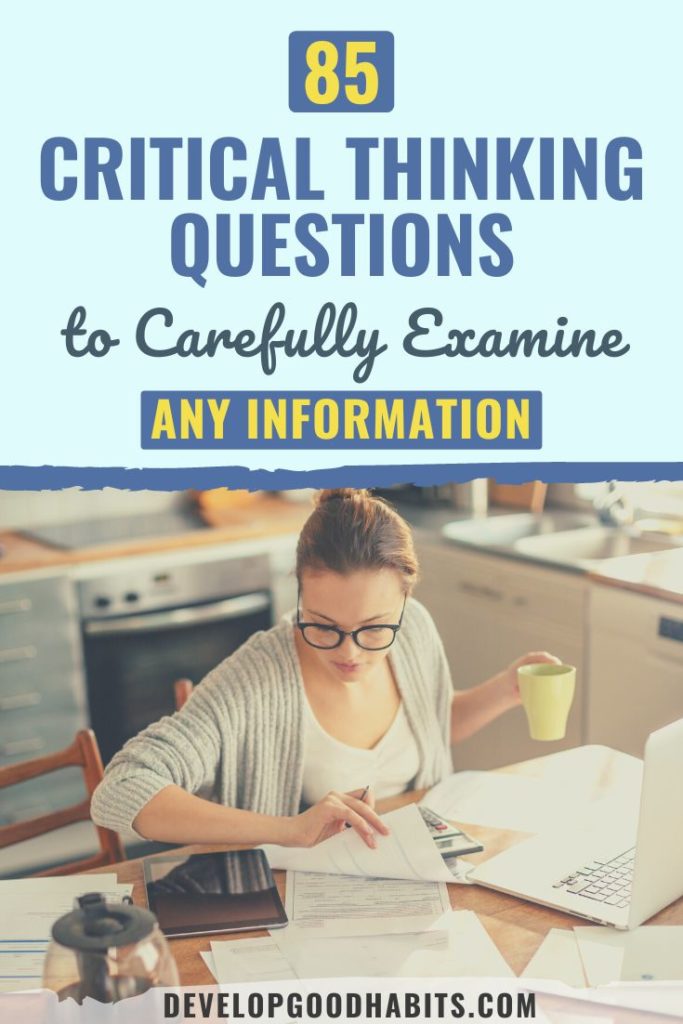
- Skip to primary navigation
- Skip to main content
- Skip to primary sidebar
- Skip to footer
Don't Miss a Post! Subscribe

- Educational AI
- Edtech Tools
- Edtech Apps
- Teacher Resources
- Special Education
- Edtech for Kids
- Buying Guides for Teachers

Educators Technology
Innovative EdTech for teachers, educators, parents, and students
Examples of Critical Thinking Questions for Students
By Med Kharbach, PhD | Last Update: May 22, 2024

Critical thinking is an essential cognitive skill that entails the ability to reason, analyze, synthesize, and evaluate information. It goes beyond mere acquisition of knowledge. Instead, it involves deep, reflective thought, demanding us to question our assumptions, weigh evidence, and consider consequences. It’s about making clear, reasoned judgments. In essence, critical thinking is thinking about thinking, in a manner that allows us to improve the quality of our thinking.
In our daily lives, critical thinking helps us better understand ourselves, other people, and the world around us. It aids in problem solving, aids in the formation of beliefs and opinions, and encourages curiosity and creativity.
For example, when you’re faced with a major decision like purchasing a house, critical thinking enables you to weigh the pros and cons, assess the credibility of your sources of information, consider alternative options, and make a well-informed decision.
In professional situations, critical thinking is equally important. It helps us navigate complex work situations, make informed decisions, solve problems efficiently, and think creatively. For instance, if a company faces a decline in sales, critical thinking would help diagnose the root cause of the issue, evaluate different strategies to address the problem, and make effective decisions to rectify the situation.
The importance of critical thinking is particularly crucial for students. It provides them with the necessary skills to understand complex concepts, evaluate the credibility of sources, engage in thoughtful discussions, and develop reasoned arguments. It lays the foundation for lifelong learning and the ability to adapt to an ever-changing world.
This brings us to the concept of critical thinking questions . These are questions that are specifically designed to promote critical thinking. They go beyond factual inquiries, prompting individuals to analyze, synthesize, apply, and evaluate information. Critical thinking questions challenge the conventional wisdom and encourage individuals to think deeper, questioning the why’s and how’s.
They serve as a tool to spark intellectual engagement and stimulate thoughtful and reflective responses. As we delve further into this blog post, we will explore different types of critical thinking questions and how they can be applied in various contexts.
Related: Best TED Ed Lessons on Critical Thinking
Tips on Formulating Critical Thinking Questions
Creating good critical thinking questions involves understanding the basics of inquiry and knowing how to stimulate higher order thinking. Here are some tips and steps on formulating effective critical thinking questions:
Characteristics of Good Critical Thinking Questions:
- Open-Ended: Good critical thinking questions are typically open-ended, meaning they don’t have a single, simple answer. They invite students to think deeply and come up with their unique insights.
- Thought-Provoking: Effective questions challenge assumptions and encourage students to think creatively and critically. They provoke curiosity and exploration.
- Promote Discussion: The questions should stimulate meaningful discussions. The responses to these questions should not end the conversation, but rather, foster a deeper exploration of the topic.
- Clear and Understandable: The question should be framed in such a way that it is clear and easy to understand. Confusing questions can deter students from critical thinking.
Steps to Create Effective Critical Thinking Questions:
- Identify Your Learning Goals: Start by figuring out what you want your students to learn or achieve. Your question should align with these learning goals.
- Consider the Cognitive Level: Depending on the depth of thinking you want to stimulate, frame your questions accordingly. For instance, for higher order thinking, you might want to ask analysis, evaluation, or creation questions.
- Draft Your Question: Begin drafting your question. Remember, the best questions are open-ended and require more than a yes or no answer.
- Refine Your Question: Review your question. Is it clear? Does it promote discussion? Does it align with your learning goals? Refine as necessary.
- Test Your Question: Try out your question with a few students or colleagues to see if it stimulates the kind of discussion you’re hoping for. Be open to further refining your question based on the results.
Keep in mind that the goal of asking questions is not to ‘stump’ the students, but to promote intellectual engagement and thought. The best questions often lead to more questions, igniting a passion for learning and exploration.
Types of critical thinking questions
Critical thinking questions can be divided into the following categories:
1. Analysis Questions
Analysis questions ask the respondent to break a concept or idea into its component parts for examination. These questions can help uncover underlying structures, patterns, or meanings. They often involve words like “compare”, “contrast”, “classify”, “divide”, etc.
Example: “Compare the political ideologies of democratic socialism and laissez-faire capitalism. What are the similarities and differences between them?”
2. Evaluation Questions
Evaluation questions call for the respondent to make a judgment about the value of something, based on defined criteria. They often use terms like “critique”, “justify”, “validate”, “defend”, etc.
Example: “Evaluate the effectiveness of the government’s pandemic response measures. What were the successes and shortcomings?”
3. Inference Questions
Inference questions require the respondent to go beyond what is explicitly stated and make logical conclusions or predictions based on the information provided. Key words often include “infer”, “deduce”, “predict”, “conclude”, etc.
Example: “Given the recent surge in online shopping trends, what can you infer about the future of brick-and-mortar retail stores?”
4. Application Questions
Application questions involve applying knowledge or concepts to new situations or contexts. These questions often involve “applying”, “utilizing”, “implementing”, or “executing” learned knowledge.
Example: “How would you apply the principles of conflict resolution that we studied to resolve a disagreement in your workplace?”
5. Synthesis Questions
Synthesis questions invite the respondent to combine different pieces of information, ideas, or concepts to form a new whole or propose a solution. Words often associated with these questions are “design”, “formulate”, “propose”, “create”, etc.
Example: “Based on your understanding of climate change and renewable technologies, propose a comprehensive strategy for a city to reduce its carbon footprint.”
These types of questions, when used in the appropriate contexts, can help foster a deep level of understanding and stimulate higher-level thinking.
Examples of Critical thinking Questions
Here are some examples of critical questions that you can use to stimulate students’ critical thinking skills, encouraging them to analyze, evaluate, and create new ideas based on what they’ve learned.
- What do you think would happen if…?
- Can you explain why…?
- How would you solve this problem using different strategies?
- Can you compare and contrast these two concepts?
- How can you demonstrate your understanding of this concept in a different way?
- How would you categorize these items, and why did you choose to do it that way?
- What patterns or connections do you see in the information provided?
- How might you interpret these findings from another perspective?
- Can you design a…to…?
- How would you prove or disprove this statement?
- How can we improve…?
- What would be the consequences if…?
- Can you predict the outcome if…?
- What is the relationship between…?
- How can this be applied to other situations?
- What are the possible solutions for…?
- Why do you think that… happened?
- How can we test the validity of…?
- What alternative would you suggest for…?
- How can you illustrate this concept in a diagram?
- What would you recommend, and why?
- How is this similar to…?
- Can you make a general rule about…?
- How would you evaluate…?
- What evidence do you have for your claim?
- What are the implications of…?
- How does this contradict or confirm your understanding of…?
- Can you think of an example where…?
- How would you justify…?
- What do you think is the significance of…?
In conclusion, critical thinking questions are an indispensable tool for stimulating and nurturing the intellectual capabilities of students. They’re not just questions, but sparks that ignite the curiosity, analytical ability, and problem-solving skills in a learner. They invite students to dig deeper, challenge their preconceptions, and engage with material on a more profound level.
These questions play a pivotal role in taking learning beyond the simple absorption of facts into the realm of true understanding and application. They prepare students for the complexities of the real world, honing their ability to analyze situations, make decisions, and innovate solutions.
As educators and teachers, fostering this skill in students through the strategic use of critical thinking questions should be a top priority. So, let’s continue to question, to probe, and to encourage our students to do the same, for it’s in the exploration of these questions that true learning lies.

Join our mailing list
Never miss an EdTech beat! Subscribe now for exclusive insights and resources .

Meet Med Kharbach, PhD
Dr. Med Kharbach is an influential voice in the global educational technology landscape, with an extensive background in educational studies and a decade-long experience as a K-12 teacher. Holding a Ph.D. from Mount Saint Vincent University in Halifax, Canada, he brings a unique perspective to the educational world by integrating his profound academic knowledge with his hands-on teaching experience. Dr. Kharbach's academic pursuits encompass curriculum studies, discourse analysis, language learning/teaching, language and identity, emerging literacies, educational technology, and research methodologies. His work has been presented at numerous national and international conferences and published in various esteemed academic journals.

Join our email list for exclusive EdTech content.

- Search Search Search …
- Search Search …
10 Critical Thinking Questions to Ask in Any Situation: Enhance Your Decision-Making Skills

Critical thinking is an essential skill in today’s information-heavy world. It helps individuals navigate through vast amounts of data and determine what is accurate and useful. This article aims to provide you with key questions that can be used in any situation to enhance your critical thinking abilities.

Asking the right questions can empower you to evaluate information effectively and make better decisions. Whether it’s assessing news articles, evaluating work presentations, or deciding on personal matters, these questions will guide your thought process . By incorporating these into your daily routine , you can sharpen your analytical skills and gain a clearer understanding of various topics.
1) What are the underlying assumptions?

Underlying assumptions are beliefs we accept without proof. These can shape our decisions and views. They often go unnoticed yet influence our thoughts and actions significantly.
In critical thinking , recognizing these assumptions is crucial. They might be hidden but can affect how we understand information. For example, thinking all teenagers are tech-savvy is an assumption that might not always be true.
Assumptions can be based on personal experiences, cultural norms, or societal expectations. These assumptions can lead to bias if not examined. Challenging them helps in forming a clearer, more unbiased perspective.
A critical thinker asks what assumptions are being made. They evaluate if these beliefs are real or just presumed. By questioning underlying assumptions, one can uncover hidden biases and make more informed decisions.
For more about identifying assumptions, visit Critical Thinking and Academic Research .
2) How relevant is this information to the issue?

Whenever one faces a problem or decision, assessing how relevant the information is to the issue is crucial. It’s about filtering out noise and focusing on what truly matters.
Relevance helps in narrowing down the data, ensuring that only useful details are considered. This prevents distractions and keeps problem-solving on track.
It’s vital to ask whether the information directly impacts the decision or if it’s just peripheral. Recognize which details support the objective and which ones do not.
Relevance also impacts the quality of decisions. Using relevant information ensures more accurate and reliable outcomes.
Evaluating relevance involves looking at the direct connection between the facts and the issue. It requires critical thinking and the ability to discern what’s important .
3) What are the possible consequences?
Thinking about possible consequences can help make better decisions. This involves anticipating both positive and negative outcomes of an action.
It is crucial to consider how a decision will affect various aspects of life. For example, a choice made at work can impact both professional reputation and personal well-being.
Considering consequences also means thinking about short-term and long-term effects. Some decisions might bring immediate benefits but lead to problems later. Balancing these factors helps avoid unwanted surprises.
Understanding potential consequences can guide towards more responsible actions. One way to do this is by asking, “If I do this, what might happen next?” This approach fosters careful and deliberate decision-making.
For instance, if a student decides not to study, the immediate consequence might be more free time. However, the long-term consequence could be poor grades. Recognizing this helps in making informed choices.
It’s also important to think about consequences for others. Actions can affect family, friends, and colleagues. By considering these impacts, one can act more ethically and thoughtfully.
In any situation, weighing possible consequences ensures a more comprehensive understanding of potential outcomes. It promotes a balanced approach and reduces the risk of negative results.
4) What evidence supports this claim?
When evaluating a claim, it’s important to ask for evidence. Evidence can include data, statistics, expert opinions, or firsthand experiences. This helps to verify the truthfulness of the statement.
Having solid evidence makes an argument stronger. For example, in academic settings, using evidence to support your argument is crucial. It helps to convince others of your point of view.
In discussions or debates, asking for evidence forces clearer thinking. This can prevent the spread of misinformation. According to Harvard University , identifying a claim and seeking evidence creates a more informed dialogue.
Always consider the source of the evidence. Reputable sources are more reliable. This ensures that the evidence is valid and trustworthy. By consistently asking for and examining evidence, you can improve your critical thinking skills effectively.
Can this viewpoint be challenged?
When considering any viewpoint, it’s crucial to ask if it can be contested. This question opens the door to examining the strength and validity of the perspective.
By challenging a viewpoint, one can explore potential weaknesses or flaws. This process is essential in critical thinking , as it encourages deeper analysis and understanding.
For instance, in a debate, questioning the opposition’s view helps identify any assumptions or biases. This scrutiny can lead to a more balanced and fair discussion.
Additionally, examining opposing viewpoints provides a broader perspective. Recognizing that multiple perspectives exist fosters a more comprehensive grasp of the topic.
Moreover, considering alternative views encourages flexibility in thinking. It helps individuals avoid rigid or narrow-minded approaches.
Encouraging students to question can promote critical inquiry in educational settings. Asking “Can this viewpoint be challenged?” engages students in active learning and reflection.
To summarize, always ask if a viewpoint can be challenged. This question is key in fostering thoughtful and informed discussions.
For more questions that foster critical thinking, such as analyzing the relevance of information, you can explore resources like TeachThought’s list of questions .
6) What Are the Alternatives?
When faced with a decision, it’s important to ask, “What are the alternatives?” This question encourages you to consider other options and not just stick to the first idea that comes to mind.
Exploring alternatives can reveal better solutions that might not have been obvious initially. It widens the scope of possibilities and helps in finding the best possible choice.
Sometimes, the best option isn’t the most convenient one. Asking about alternatives encourages more thoughtful decision-making. It ensures that all potential paths are evaluated.
Considering alternatives can also help identify any potential risks or benefits not initially evident. This leads to more informed and balanced decisions.
For instance, if a manager needs to improve team productivity, they shouldn’t just implement the first suggested tool. They should think about various tools and methods, comparing their pros and cons.
Asking “What are the alternatives?” is a habit of strong critical thinkers. It ensures they are not limited by initial impressions and are open to different perspectives.
Tools like brainstorming sessions and mind maps can be helpful in identifying and evaluating alternatives. These methods ensure a thorough exploration of all possible options.
7) Who benefits from this?
When examining a situation, it’s key to identify who stands to gain.
Understanding who benefits helps uncover motivations. For example, if a new policy is implemented, ask who benefits from this . It could be companies, individuals, or specific groups.
Looking at all angles can provide clarity. Different stakeholders may have varying benefits. Some might gain financially, while others might receive social or political advantages.
Knowing the beneficiaries can also reveal any potential biases. If a project benefits only a small group, it might not serve the wider community well.
This question is essential because it digs deeper into the heart of the issue. It gets to the core of why certain actions are taken and who is truly advantaged.
8) What are the sources of bias?
Bias can stem from many areas. Personal opinions and values are common sources. If a person holds strong beliefs, these can color their judgment and decision-making.
Preconceived notions also play a big role. When someone has a fixed idea about something, they may ignore new information that contradicts their belief.
Cognitive biases are another source. These are mental shortcuts that affect how people process information. The Khan Academy explains that these can lead to errors in thinking.
Social biases, like racism or sexism, come from societal influences. These explicit biases can affect how someone views and treats others based on group identity.
Unconscious biases are hidden preferences that influence decisions without awareness. These implicit biases can be just as powerful as explicit ones.
External influences such as media and peers can also introduce bias. News sources and social circles can shape opinions and views, often without one noticing.
Understanding these sources can help in recognizing and mitigating bias in decision-making.
9) Is the argument logically sound?
A crucial step in critical thinking is to check if an argument is logically sound. A sound argument is one that is both valid and has true premises. Valid arguments have a structure where the conclusion follows logically from the premises.
If any premise of an argument is false, the argument cannot be sound. This means that even if the logic is valid, the argument fails because it is based on incorrect information. It’s important to verify the truth of each premise before accepting the conclusion.
One way to practice this is by asking if the premises logically lead to the conclusion without any gaps. For example, an argument that states, “All humans are mortal. Socrates is a human. Therefore, Socrates is mortal,” is sound because both premises are true and lead to a logical conclusion.
When evaluating arguments, look for common fallacies. These can include ad hominem attacks, false dilemmas, or appeals to authority. For instance, claiming a law is unconstitutional because a friend, who is a lawyer, said so might be an example of a fallacy .
In summary, ensuring an argument is logically sound involves checking both the validity of its structure and the truth of its premises. This helps in making informed decisions based on reliable reasoning.
10) What is the context of this situation?
Understanding the context of a situation is crucial for effective decision-making. Context includes the background and framework within which events occur. It helps identify the relationships between different elements in a scenario.
Context can include historical background. This involves looking at past events that might influence the current situation. Knowing what has happened before can provide insight into why things are the way they are now.
Another aspect of context is the environment. This means understanding the physical, social, or cultural setting. For example, a decision in a corporate environment may differ greatly from one made in a community-based setting.
Stakeholder perspectives also define the context. Understanding who is affected by the situation and what their interests are can guide more empathetic and effective choices. This includes considering the opinions, motivations, and potential biases of everyone involved.
Economic factors can be part of the context as well. Financial constraints or incentives often play a role in shaping decisions. Understanding the monetary aspects can lead to more informed and practical outcomes.
Lastly, legal and ethical considerations are essential. Rules, laws, and ethical norms provide boundaries within which decisions must be made. Ignoring these can lead to negative consequences.
Knowing the context ensures that decisions are not only well-informed but also sensitive to the broader environment and potential impacts. This comprehensive understanding can lead to better, more sustainable outcomes.
The Importance of Critical Thinking
Critical thinking is essential because it enhances decision-making and problem-solving skills. It impacts both personal growth and career development by fostering informed opinions and objective analysis.
Why Critical Thinking Skills Matter
Critical thinking allows individuals to analyze and break down complex issues. By asking better questions, people can make more informed decisions. It involves understanding and evaluating information rather than just accepting it. This skill helps in identifying biases and making logical connections. According to the Harvard Business Review , critical thinking is at the heart of problem-solving, enabling individuals to tackle challenges efficiently.
Impact on Personal and Professional Life
In personal life, critical thinking improves self-awareness and reduces limitations set by negative beliefs. This leads to better decision-making and a higher quality of life, as noted by the University of the People . Professionally, it is crucial for the economy and enhances skills like communication and presentation. Being able to think critically means considering all options and their potential impacts, which is valuable in any career. This approach leads to well-informed opinions and effective problem-solving strategies, making individuals indispensable in their fields.
Applying Critical Thinking in Various Contexts
Applying critical thinking helps individuals analyze information and make better decisions. It is useful in different areas such as work, education, and everyday life.
Critical Thinking at Work
In the workplace, critical thinking can improve problem-solving. Employees who evaluate situations carefully often find effective solutions. For instance, a manager might assess the root cause of a decline in sales before deciding on a strategy. This helps in making informed decisions.
Critical thinking also aids in teamwork. When team members question and discuss ideas, they develop better plans. For example, during a project, brainstorming sessions benefit from diverse opinions. This approach ensures that the final plan is robust and well-thought-out.
Employers value critical thinkers. These employees can foresee potential issues and address them proactively. They contribute to a more efficient and innovative work environment. Companies benefit from having staff who can handle complex situations thoughtfully.
Critical Thinking in Education
In education, critical thinking enhances learning. Students who question assumptions and analyze texts develop deeper understanding. For instance, when studying historical events, they evaluate causes and consequences, leading to a more comprehensive grasp of history.
Teachers encourage critical thinking through discussions and problem-based learning. Rather than just memorizing facts, students engage with the material. This active participation helps them retain information and apply it in real-world situations.
Critical thinking prepares students for future challenges. By learning to think critically, they become better equipped to tackle complex problems. This skill is essential for success in higher education and future careers.

Everyday Decision Making
Critical thinking is valuable in daily life. It helps individuals make better personal decisions. For example, before buying a product, a person might research reviews and compare prices. This careful evaluation ensures that they get the best value.
In health-related choices, critical thinking is crucial. Evaluating medical advice and considering all options lead to better health outcomes. For instance, understanding the benefits and risks of a medical procedure helps in making informed decisions.
It also aids in resolving conflicts. By considering different perspectives, individuals can find peaceful solutions. Critical thinking fosters empathy and understanding, making personal interactions more harmonious.
Enhancing Your Critical Thinking Abilities
Improving your critical thinking skills involves developing specific techniques and overcoming barriers that can hinder your progress.
Techniques for Improvement
One effective way to boost critical thinking is by asking open-ended questions. This can help uncover deeper insights and encourage detailed responses. Questions like “Why do you think this happened?” or “What are the possible outcomes?” can stimulate deeper thought.
Another technique is to engage in active listening. Focus on understanding the speaker’s point of view and consider the context before forming an opinion. This practice helps in evaluating information accurately.
It’s also useful to practice problem-solving regularly. Tackle puzzles, play strategy games, or engage in debates. These activities train the mind to think critically under different scenarios.
Finally, maintain a habit of continuous learning. Staying informed on various topics broadens your perspective, making it easier to analyze situations from multiple angles.
Overcoming Common Barriers
A major obstacle to critical thinking is cognitive bias. These biases can cloud judgment and lead to poor decisions. Being aware of common biases like confirmation bias or anchoring can help you recognize and counteract them.
Stress and time constraints can also hinder critical thinking. Practicing stress management techniques such as meditation or time management can create a more conducive environment for thoughtful analysis.
Another barrier is the lack of confidence. To overcome this, focus on building self-assurance through practice. Engaging in group discussions or seeking feedback can provide different perspectives and boost confidence.
Lastly, an unwillingness to challenge assumptions can impede critical thinking. Commit to questioning existing beliefs and explore alternative viewpoints, allowing for a more comprehensive understanding of any situation.
You may also like

Critical Thinking in 2022: The Key To Growing and Maintaining Knowledge
Although the major focus on critical thinking has only been popular in the last 100 years or so, you can see hints […]

What is historical thinking?
Historical thinking is something that more and more people are taking an interest in, but do you know what it really means? […]
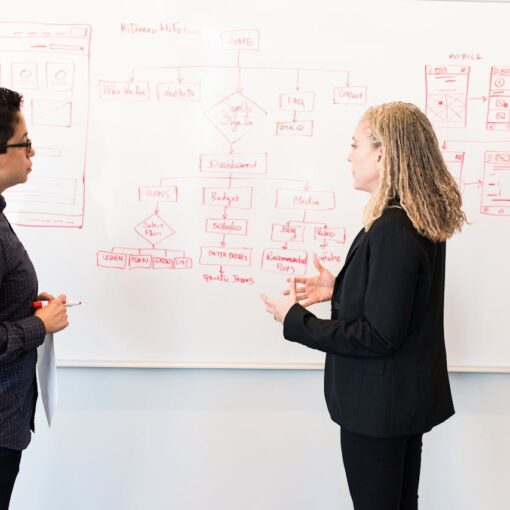
Mind Mapping for Critical Thinking: Boost Analytical Skills Effortlessly
Mind mapping is an effective tool for improving critical thinking. Developed by Tony Buzan in the 1960s, mind mapping helps organize thoughts […]
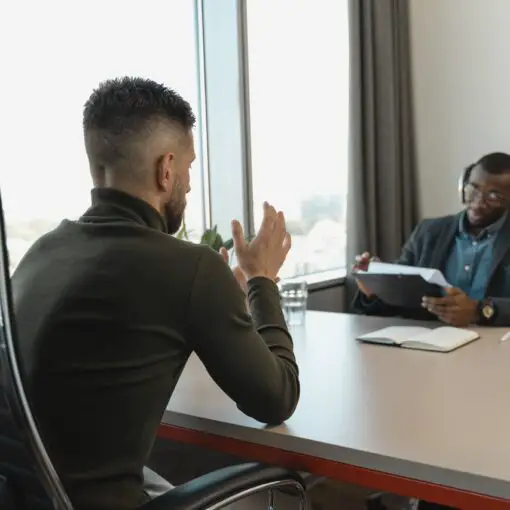
Critical Thinking job interview questions
In all areas of work the applicants have their own reasons for applying for a position, and the main aim of the […]

Critical thinking
200+ critical thinking questions.
“Judge a man by his questions rather than his answers.” – Voltaire As critical thinkers, it’s our job to question everything, instead of just blindly believing what we’re told, but what kinds of questions should we be asking though? What are the “right” questions to ask? In this article I’ve compiled a list of 200+ […]
“Judge a man by his questions rather than his answers.” – Voltaire
As critical thinkers, it’s our job to question everything, instead of just blindly believing what we’re told, but what kinds of questions should we be asking though?
What are the “right” questions to ask?
In this article I’ve compiled a list of 200+ of the very best critical thinking questions for almost any situation.
Critical thinking questions:
- If you’re presented with a claim
If you’re reading a book, listening to a podcast, watching TV or YouTube
If you’re watching an interview.
- In a group or panel discussion
- In an argument or debate
If you’re watching the news
- If you want to spot a lie
If you want to spot a scam
- If you’re presented with statistics
- Critical thinking about your life
Let’s begin:
- Is this an argument, a claim, a belief, an opinion, or a fact?
When you’re presented with information, whether it’s something you’re reading, watching or listening to, ask yourself:
- How do you know it’s a fact?
- What evidence exists to support this “fact”?
- Has this “fact” been proven?
- Do the majority of experts on the subject agree that this is a fact? Is there an expert consensus on this fact? If not, why not?
- Is this an ordinary or extraordinary claim?
- Do the majority of experts agree with this claim? Or is it contentious?
- What is the source of this claim?
- Who is making this claim?
- Is this person an authority or expert?
- How reliable is this source?
- What are the best arguments in support of this claim?
- What do the harshest critics against this position say?
- What arguments do skeptics of this position give?
- Has this claim already been debunked?
- Is this evidence good enough to accept the arguers assertions?
- Would this evidence stand up in court?
- Or is the arguer/author/speaker making assertions without evidence?
- What is the strongest evidence against this claim?
- Is there more confirming or disconfirming evidence?
- Is the expert consensus (if there is one) for or against this claim? Why?
- Do the majority of experts agree or disagree with this claim? Why?
- How can we verify or falsify this claim?
- A statement may be true, but is it relevant? Why?
- To what degree? To what extent?
- Under what conditions?
- In what context or circumstances?
- This claim is 100% true
- This claim is 100% false
- This claim is mostly true, partly false
- This claim is mostly false, partly true
- This claim is half true, half false
- Remember: There are degrees of “rightness” and “wrongness”. Statements are rarely 100% true or 100% false
- What further claims does this claim logically entail?
- Which of my beliefs would I have to change if I were to accept this claim?
- If this is an argument, is it deductive or inductive?
- If an argument is deductive, is it sound, valid, invalid, or unsound?
- If an argument is inductive, is it cogent, strong, weak, or unsound?
- How do you know this?
- How did you determine this?
- What evidence or proof do you have for this claim?
- What is their background?
- What makes them qualified to speak on this subject?
- Are they an expert in the field?
- On what basis is the author or speaker an authority or expert on the subject, or at least credible?
- Are they conservative or liberal?
- Atheist or religious?
- Feminist or MGTOW?
- (No author/speaker is completely neutral, unbiased and objective)
- When was the article, book, podcast, video etc., written or recorded? Is it possibly outdated? Is there a more recent up-to-date version available?
- Why did the author write this article/book?
- Why is the speaker giving this talk? What is their motivation?
- What is the purpose of this information? Why was it created?
- Why did I choose to read/watch/listen to it?
- Who benefits from this information? Why? How?
- Is this information relevant to you? If so, how? Why do you need to know this? How does it affect you personally?
- What are the authors/speakers main arguments and assertions? What is their philosophy? What are their main points?
- Is the author/speaker arguing for anything controversial? If so, there are likely to be good counterarguments on the other side
- Anonymous authorities aka “weasel words” e.g. “experts say…” “scientists say…” “studies show…”
- Deductive or inductive reasoning
- Expert opinion
- Expert consensus
- Randomized controlled trials
- Scientific studies
- Scientific consensus
- Or are they making assertions without evidence?
- What is the strongest evidence in support of these assertions? Is this evidence good enough to accept the authors/speakers conclusions? Would it stand up in court?
- What is the strongest evidence against these assertions?
- What might be another equally valid interpretation of the evidence or study results?
- What conclusions does the author/speaker want you to draw? What do they want you to think/believe/understand/do?
- Is the author/speaker/news station trying to push a narrative? e.g. “Diversity”, “Gender pay gap”, “Immigration”?
- Do you agree with the authors/speakers assertions? Why/why not? Anything you disagree with?
- Do you agree with the authors/speakers philosophy? Why/why not? Anything you disagree with?
- Do you agree with the authors/speakers “facts” and description of “reality”? Why/why not? Anything you disagree with?
- Do you agree with the authors/speakers arguments and rationale? Why/why not? Anything you disagree with?
- Are there any fallacies in the authors/speakers argument or rationale? If so, what?
- Does the author/speaker address counterarguments, disconfirming evidence, objections etc.? If so, how effectively do they rebut these points?
- If the author/speaker provides a “rule”, are there any exceptions to the rule that are not explained or accounted for?
- Do you agree with the authors/speakers conclusions? Why/why not? (You might agree with their arguments and rationale but not with their conclusions) Are they backed up by sufficient evidence? Or is the author/speaker jumping to conclusions too quickly from insufficient evidence?
- Are there any other equally valid conclusions or interpretations that could have been drawn from the evidence, or any other competing theories with better explanations for the evidence? If so, what?
- What is the perspective of the author/speaker? Do they seem like an insider or outsider? Why?
- Whose perspective is this information presented from? America’s or someone else’s? Conservative or liberal? Men or Women? Gen X, Y or Z?
- What perspectives/viewpoints are not represented here? What other perspectives might be equally valid, or worth looking into?
- What would (person) say about it?
- What would (group) say about it?
- Is there better evidence for one perspective/viewpoint than another?
- Is the author/speaker presenting you with both sides of the story – or only one?
- How has the author/speaker framed the information or story?
- Is the author/speaker embellishing or sensationalizing the story for dramatic effect? Do you think the story really took place the way the author/speaker tells it?
- What assumptions is the author/speaker making? What does the author/speaker have to believe is true before the rest of their argument makes sense?
- What are the implications of the authors/speakers argument? If this is true, what else must be true?
- What are the main problems the author/speaker is trying to solve? What solutions do they propose?
- Do you agree with the authors/speakers proposed solutions? Can you think of even better solutions to these problems?
- Has the author/speaker identified the real problem/s, or only a symptom of the problem?
- Is the author/speakers analysis or solution to the problem or situation oversimplified or incomplete? What needs to be unpacked or expanded upon?
- Is the author/speaker engaged in oversimplified black and white thinking as if something “always” or “never” happens, or as if “everyone” or “no one” should think/believe/do something, or as if something was right/wrong, true/false, correct/incorrect, without any grey areas in between?
- Are you engaged in black and white thinking, as if “everything” or “nothing” the author/speaker says is true? Or are you judging the validity of the information line by line, sentence by sentence, claim by claim, realizing that some parts could be true, and other parts false?
- Is the author/speaker emotional reasoning? Is it facts over feelings, or feels over reals?
- How would you describe the author/speakers tone? Dogmatic? Overconfident? Emotive? Pay attention not only to what is said, but how it’s said. How does the tone affect your response to the speech/text?
- Is the author/speaker using emotive language/tonality, and/or dramatic images or video, in an attempt to alarm, scare or outrage you?
- Is the author/speaker guilty of magical or superstitious thinking? Is there a lot of talk of “the law of attraction”, “miracles”, “soul mates” etc.?
- Does the author/speaker treat their opponents charitably and fairly? Do they treat the other side as intelligent people with a difference of opinion/perspective? Or do they demonize them as “crazy”, “dangerous”, “evil”, “dumb”, “stupid”, “racist”, “sexist”, “homophobic”, “transphobic” etc.?
- Does the author/speaker seem intellectually honest? Trustworthy? Why/why not?
- Is the author/speaker trying to be objective in their analysis and critique? Perfect objectivity isn’t possible, but are they even trying to be impartial, unbiased and objective?
- Yes: Be careful you’re not automatically believing everything they have to say without evidence, and letting them do your thinking for you
- No: Be careful you’re not automatically dismissing everything they have to say because you don’t like them (Remember: Examine the statement – not the speaker)
- Yes: Beware because you’re more likely to believe it whether it’s true or not
- No: Beware because you’re more likely to dismiss it whether it’s true or not
- The truth, the whole truth, and nothing but the truth
- Half-truths and holding something back
- Straight up lying
- Is the author/speaker misquoting people, or taking quotes out of context?
- Did the person really say …? Is this a real quote/tweet? Or has the person been misquoted or quoted out of context? Is this a fake tweet?
- How are you going to use this information? What are you going to do with it? How are you going to put it into practice? How will it make a difference to your life?
- What is the purpose of this interview? Is it to educate or entertain the audience? Is it to promote a product or service?
- Who is the interviewee? Why is this person being interviewed?
- When did this interview take place? Is this information possibly outdated and no longer relevant?
- Is the interviewer asking the interviewee mostly softball or hardball questions?
- Is the interviewer asking the interviewee a lot of leading, loaded or gotcha questions? Do they seem to be trying to lead or trap the interviewee? e.g. “Yeah, but isn’t it true that…”, “Yeah, but don’t you think…”, “Yeah, but what about…”
- Is the interviewer really listening to the interviewee? Are they making a real effort to try to understand the interviewee and their position, or are they simply trying to promote or condemn it?
- Is the interviewer deliberately trying to make the interviewee look bad? e.g. Are they being overly disagreeable or standoffish? Do they only ask hardball or gotcha questions and then interrupt the interviewee mid-sentence with another difficult question every time the interviewee starts to give a good answer?
- Does the interviewer interrupt or cut off the interviewee if they start talking about anything controversial, or if they start talking about anything that doesn’t align with the narrative of the network e.g. anti-abortion, pro-gun or pro-Trump comments?
- Has the interview been edited to make the interviewee look bad, to paint them in a negative light?
- What additional questions would you ask the interviewee that the interviewer didn’t ask?
If you’re watching a group or panel discussion
If you’re watching a group discussion or debate, especially on a contentious topic e.g. abortion or gun control:
- Who are the panel members? What makes these people authorities or experts on the subject?
- Are both sides of the debate equally represented with intelligent people? Or is one side represented by heavyweights and the other side lightweights?
- Is there an equal distribution of liberal and conservative pundits? Or is it a majority liberal panel with a token conservative? (or vice versa)
- Does the host seem biased towards one side over the other? Is the host picking sides and showing their approval/disapproval of one side?
- Is the audience showing an obvious bias to one side of the debate? Are they only applauding/booing one side of the debate?
- Is the host giving more airtime, credibility and/or respect to one side?
- Is the host trying to make one side look bad, ignorant or stupid?
In an argument or a debate
If you’re in an argument or a debate, or watching one:
- Is this an argument or an assertion? If it’s an argument, is it deductive, inductive or abductive? Is it sound or cogent? Valid or invalid? Strong or weak?
- Are all of the premises true and correct? Do all of the premises necessarily lead to the conclusion? Are there any unjustified leaps of logic?
- Am I clear on how each word is being defined in the argument?
- Is someone attempting to redefine words e.g. “rational”, “reasonable”, “racist” etc., to support their preferred conclusion?
- Is someone trying to shift the burden of proof? Note: The burden of proof is the obligation to provide evidence to support one’s assertion e.g. “You are guilty” and it is always on the one making the claim – not the other way around
- Has this argument already been debunked?
- Is someone making a PRATT? (Point refuted a thousand times)
- Is this a strawman or steelman argument?
- Is this the best argument in support of …?
- What are the best arguments in support of …?
- What are the best arguments against …?
- What is the strongest evidence in support of …?
- What is the strongest evidence against …?
- Is the preponderance of evidence for or against …? Is there more confirming or disconfirming evidence?
- Is the expert consensus (if there is one) for or against …? Why?
- Do the majority of experts agree or disagree with …? Why?
- Are there any fallacies in this argument or rationale? If so, what? (Fallacies don’t necessarily make an argument invalid but it’s still good to be aware of them)
- Am I 100% certain I understand my opponent’s position? Am I sure? Could I argue my opponent’s position convincingly? Could I steelman it? Could I pass the Ideological Turing Test? If not, you don’t understand it. Don’t argue for or against a position until you fully understand it
- What are the strongest points of my opponent’s argument?
- What are the weakest points of my opponent’s argument?
- What are the weakest points of my argument?
- What is the strongest evidence against my position?
- What are the best arguments against my position?
- How would I attack my argument if I had to?
- What do I like about my opponent’s position, and what do I dislike about mine?
- What aspects of my argument are likely to be unconvincing to those that don’t already agree with me?
- Does my opponent seem intellectually honest? Are they arguing in good faith? Are they willing to follow the evidence where it leads? Are they willing to admit when they’re mistaken or wrong? Am I?
- Does my opponent seem more interested in “winning” the argument or discovering the truth?
Ask the other person:
- How did you determine that?
- How did you come to that conclusion?
- What do you know that I don’t?
- Where am I wrong in my argument or rationale?
- What evidence would it take to change your mind, to convince you otherwise?
- Are these your real reasons for believing X? If all of these reasons were proven wrong, would you still continue to believe X? If yes, let’s not even worry about these reasons because they’re not the real reasons you believe X. What are the real reasons you believe X?
- Why do you think other smart people aren’t convinced by the same arguments and evidence that you are?
- Associated Press News
- The Bureau of Investigative Journalism
- The Economist
- Pro Publica
- What is the bias of this news station? Are they liberal or conservative? You can check the bias of a particular news station here: Media Bias Fact Check
- Fear mongering
- Gossip/rumors
- Hatchet jobs
- Outrage porn
- Puff pieces
- Is this really the most important “news” of the day? Why is this story being prioritized over everything else that happened today?
- Why do I need to know this? How does it affect me?
- What is the purpose of this news story? Why was it created? What does the news station want you to think/believe/do?
- When was this news story published? Is this information current, or is it outdated and/or no longer relevant?
- Has this story already been debunked?
- Truth or Fiction
- The Washington Post Fact Checker
- Hoax Slayer
Check these websites to see if a claim or story has already been debunked, but don’t rely on any of these websites to do your thinking for you, because they may mislead you with their own political biases
- Has this story or headline been written to educate, entertain or infuriate you?
- Is the headline an accurate summary of the information – or is it just clickbait?
- Do the photos fit the story?
- Has an unflattering photo been deliberately chosen to paint the subject e.g. Trump in a bad light?
- Is it likely that this story has been embellished or sensationalized?
- How has this information been framed or spun?
- Are you being presented with both sides of the story – or only one?
- Whose perspective is this presented from? Conservative or liberal? America’s or someone else’s? Men or Women? What other perspectives might be equally valid, or worth looking into?
- What do the other news stations say? e.g. if you watch CNN or MSNBC, what does CBS or FOX say? (and vice versa)
- Are you being presented with facts or opinions? If “facts”, on what basis are they “facts”? What evidence exists to support these “facts”?
- Do the media’s “facts” and description of “reality” seem accurate? Why/why not? Anything you disagree with?
- Did someone really say that? Or have they been misquoted or quoted out of context?
- Does the domain look credible?
- Is this satire?
How to spot a liar
- Does it seem like this person is lying or telling the truth? Why? Are they a known liar?
- Is this person motivated to deceive me? Do they stand to gain something by lying to me? What might this person gain by lying to me?
- Dodge the question
- Ignore the question
- Attack you for asking the question, “How could you ask me a question like that!”
- Refuse to answer the question
- Answer a different question
- Turn the question back on you, “I could ask you the same thing!”
- Give short one word answers
- Give vague or ambiguous answers
- Talk around in circles without answering the question
- If you ask the person the same question multiple times using different words, do they give different answers and contradict themselves? Do the details in their story keep changing?
- Uncomfortable
- Does the person speak slower or faster or louder than normal when answering your questions?
- Does the person hesitate, take long pauses, or talk slower than normal when answering your questions? (maybe in an attempt to think on the spot and buy time?)
- Do they avoid eye contact and/or cover their mouth when answering questions?
- Do they start sentences and not finish them, or change topics and start talking about something else mid-sentence?
- Does the tone or volume of their voice change? Does their voice crack and/or go higher than normal? Do they cough repetitively and clear their throat, or stammer or stutter?
- Do they blink rapidly, or not at all, or have a fake or nervous smile?
- Do they roll their lips back or purse them?
- Does their body language seem uncomfortable?
- Do their emotions and facial expressions match their words? When they say they’re “good” or “okay”, do they seem good or okay?
- Does it seem like they’re in a hurry to change the subject?
- This person is telling “The truth, the whole truth, and nothing but the truth”
- This person is telling half-truths and holding something back
- This person is playing dumb and pretending to know less than they do
- This person is straight up lying
- What does your gut/intuition say? Does it seem like they’re lying or telling you the truth? (or both)
- Is a stranger emailing, texting or calling you out of the blue claiming something too good to be true? e.g. you’ve entitled to a large inheritance – and all you need to do is provide bank details, or pay taxes or transfer costs? Or that you’ve won a prize in a competition or lottery you’ve never entered?
- Is someone calling you claiming to be from your bank, gas/electricity provider, phone company etc. and asking you to verify your personal contact details, password, bank details, credit card number etc.? maybe due to “unauthorized” or “suspicious activity” on your account?
- Does a google search on the exact wording of the email, text or ad reveal a scam?
- Does the email contain any grammatical or spelling errors, or overly formal language?
- Does the email ask you to click a link or open an attachment?
- If you’re buying something online is the seller asking you to make payment with an insecure payment option? e.g. direct bank transfer, money order, or a cryptocurrency like Bitcoin?
- In an online dating scenario, is someone professing strong feelings for you after only a few encounters?
- Does the person have a sense of urgency? Are they claiming to need money urgently for a personal or family emergency, medical attention, or to come see you?
- Is someone using pressure tactics, and trying to make you feel guilty or selfish for not buying their product or service, or donating to a charity?
- Is someone trying to manipulate you with sleazy sales/self-help seminar type questions e.g. “Do you want to be rich or poor?” “A winner or a loser?” “A success or a failure?”
- Does it seem too good to be true? Does it seem like a scam? If so, it probably is
- What does your gut/intuition say?
Statistics questions
“There are three kinds of lies: lies, damned lies, and statistics.” – Benjamin Disraeli
Ask yourself the following questions whenever you’re presented with any statistic:
- Who paid for the study or survey?
- Who conducted the study or survey? Does it come from a credible source?
- Why was the study or survey done? What is the likely agenda?
- When was the study done? Is the information outdated? Is it still relevant? Times change. Public opinion changes
- Who was polled? Conservatives or liberals? Men or women? Asians, Blacks, Hispanics or Whites? What age group? Gen X, Y or Z? How diverse was the group?
- How large was the sample size? How many people were surveyed? Is the sample size large enough? Is it qualitative, quantitative, or mixed methods? Was the sample size sufficient? Was it representative enough of the wider population? Did the participants come from different cultural and social backgrounds? How generalizable are the findings?
- What are the statistics measuring?
- How long did the information take to gather? Was it a 2 week survey? A 6 month study? A 10 year study?
- What questions were asked?
- How was each question asked? Were the questions leading or loaded or worded in such a way as to encourage a certain answer?
- What is the context of the survey?
- How was the research done? Phone, email, social media, face to face?
- What is the number as a percentage? e.g. 55, 000 Americans is 0.0167% of the population
- Is the percentage statistically insignificant? e.g. 500, 000 Americans might be addicted to Heroin, but as a percentage that’s ‘only’ (any number above one is obviously too high) 0.153% of Americans
- Do the author’s conclusions and the headline logically follow from the data? Or are they reading too much into the data? Find the raw data if you can. Don’t just accept and believe headlines for statistics. Make sure it says what the headline says it says. Statistical headlines are often used to suggest things the data doesn’t actually say
- Is the research confusing causation and correlation? Check out: spurious correlations for a perfect visual example of why correlation does not equal causation
- Has this study been peer reviewed by experts?
- Beware of unsourced statistics
“I can prove anything by statistics except the truth.” – George Canning
Critical thinking about your life questions
“The unexamined life is not worth living” – Socrates
You can apply critical thinking to the books you read, the podcasts you listen to, the information and “news” presented to you, but ultimately, what better place to apply critical thinking skills than to your own life?
- Which biases and fallacies are you most guilty of?
- Where/when do you most often fail to practice critical thinking?
- What are your sacred cows? What shouldn’t be questioned? What is off limits? God? Jesus? Buddha? Krishna? Muhammad? The Bible? The Bhagavad Gita? The Quran? Your Guru?
- What do you need to start/stop doing?
- What do you need to do more/less of?
- What are your best/worst habits?
- Where do you waste the most time?
- Who/what should you cut out of your life?
- What one thing, if you were to take action on it, would produce the greatest difference in your life?
- A year from now, what will you wish you had started today?
Recommended reading
For additional critical thinking questions check out:
Critical Reading: The Ultimate Guide
The Socratic Method
50 Critical thinking tips

What is the Critical Thinking Test?
Critical thinking practice test, take a free practice critical thinking test, practice critical thinking test.
Updated November 16, 2023

The Critical Thinking Test is a comprehensive evaluation designed to assess individuals' cognitive capacities and analytical prowess.
This formal examination, often referred to as the critical thinking assessment, is a benchmark for those aiming to demonstrate their proficiency in discernment and problem-solving.
In addition, this evaluative tool meticulously gauges a range of skills, including logical reasoning, analytical thinking, and the ability to evaluate and synthesize information.
This article will embark on an exploration of the Critical Thinking Test, elucidating its intricacies and elucidating its paramount importance. We will dissect the essential skills it measures and clarify its significance in gauging one's intellectual aptitude.
We will examine examples of critical thinking questions, illuminating the challenging scenarios that candidates encounter prompting them to navigate the complexities of thought with finesse.
Before going ahead to take the critical thinking test, let's delve into the realm of preparation. This segment serves as a crucible for honing the skills assessed in the actual examination, offering candidates a chance to refine their analytical blades before facing the real challenge. Here are some skills that will help you with the critical thinking assessment: Logical Reasoning: The practice test meticulously evaluates your ability to deduce conclusions from given information, assess the validity of arguments, and recognize patterns in logic. Analytical Thinking: Prepare to dissect complex scenarios, identify key components, and synthesize information to draw insightful conclusions—a fundamental aspect of the critical thinking assessment. Problem-Solving Proficiency: Navigate through intricate problems that mirror real-world challenges, honing your capacity to approach issues systematically and derive effective solutions. What to Expect: The Critical Thinking Practice Test is crafted to mirror the format and complexity of the actual examination. Expect a series of scenarios, each accompanied by a set of questions that demand thoughtful analysis and logical deduction. These scenarios span diverse fields, from business and science to everyday scenarios, ensuring a comprehensive evaluation of your critical thinking skills. Examples of Critical Thinking Questions Scenario: In a business context, analyze the potential impacts of a proposed strategy on both short-term profitability and long-term sustainability. Question: What factors would you consider in determining the viability of the proposed strategy, and how might it affect the company's overall success? Scenario: Evaluate conflicting scientific studies on a pressing environmental issue.
Question: Identify the key methodologies and data points in each study. How would you reconcile the disparities to form an informed, unbiased conclusion?
Why Practice Matters
Engaging in the Critical Thinking Practice Test familiarizes you with the test format and cultivates a mindset geared towards agile and astute reasoning. This preparatory phase allows you to refine your cognitive toolkit, ensuring you approach the assessment with confidence and finesse.
We'll navigate through specific examples as we proceed, offering insights into effective strategies for tackling critical thinking questions. Prepare to embark on a journey of intellectual sharpening, where each practice question refines your analytical prowess for the challenges ahead.
This is a practice critical thinking test.
The test consists of three questions .
After you have answered all the questions, you will be shown the correct answers and given full explanations.
Make sure you read and fully understand each question before answering. Work quickly, but don't rush. You cannot afford to make mistakes on a real test .
If you get a question wrong, make sure you find out why and learn how to answer this type of question in the future.
Six friends are seated in a restaurant across a rectangular table. There are three chairs on each side. Adam and Dorky do not have anyone sitting to their right and Clyde and Benjamin do not have anyone sitting to their left. Adam and Benjamin are not sitting on the same side of the table.
If Ethan is not sitting next to Dorky, who is seated immediately to the left of Felix?
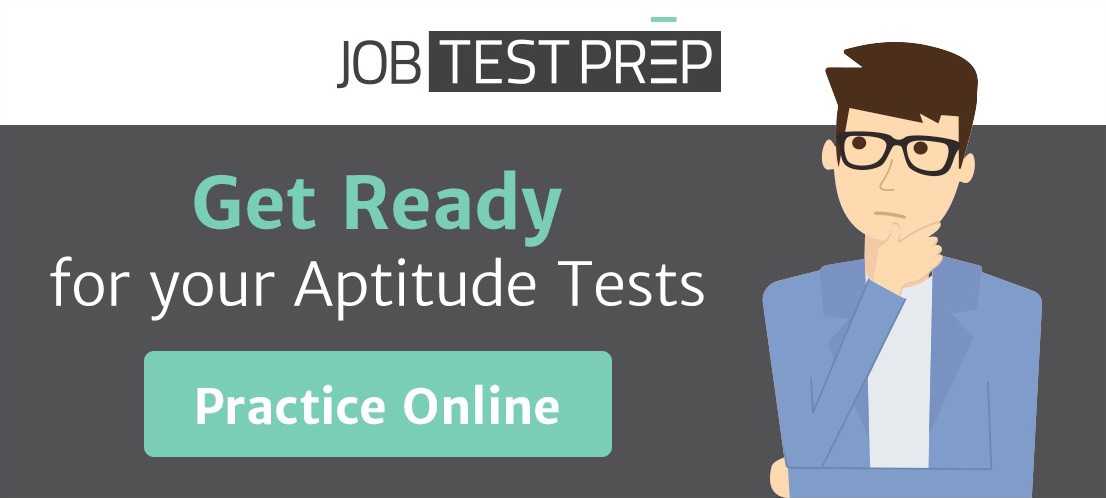
You might also be interested in these other PRT articles:
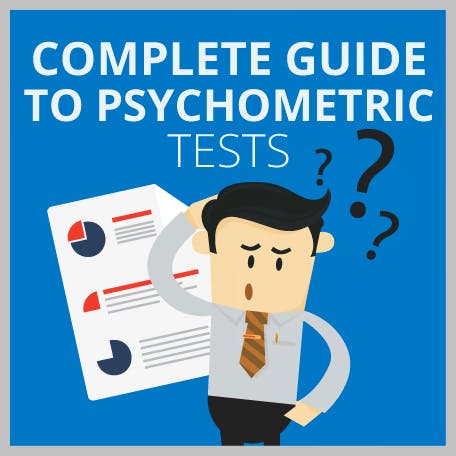
The Harriet W. Sheridan Center for Teaching and Learning
Questions to provoke critical thinking.
- Teaching Resources
- Classroom Practices
- Discussions and Seminars
Varying question stems can sustain engagement and promote critical thinking. The timing, sequence and clarity of questions you ask students can be as important as the type of question you ask. The table below is organized to help formulate questions provoking gradually higher levels of thinking.
Lower Levels
Higher levels.
1 From Alison King, “Inquiring Minds Really Do Want to Know: Using Questioning to Teach Critical Thinking,” Teaching of Psychology 22 (1995): 14.
- Grades 6-12
- School Leaders
30 Meaningful Martin Luther King Jr. Activities for All Ages
100+ Critical Thinking Questions for Students To Ask About Anything
Critical thinkers question everything.
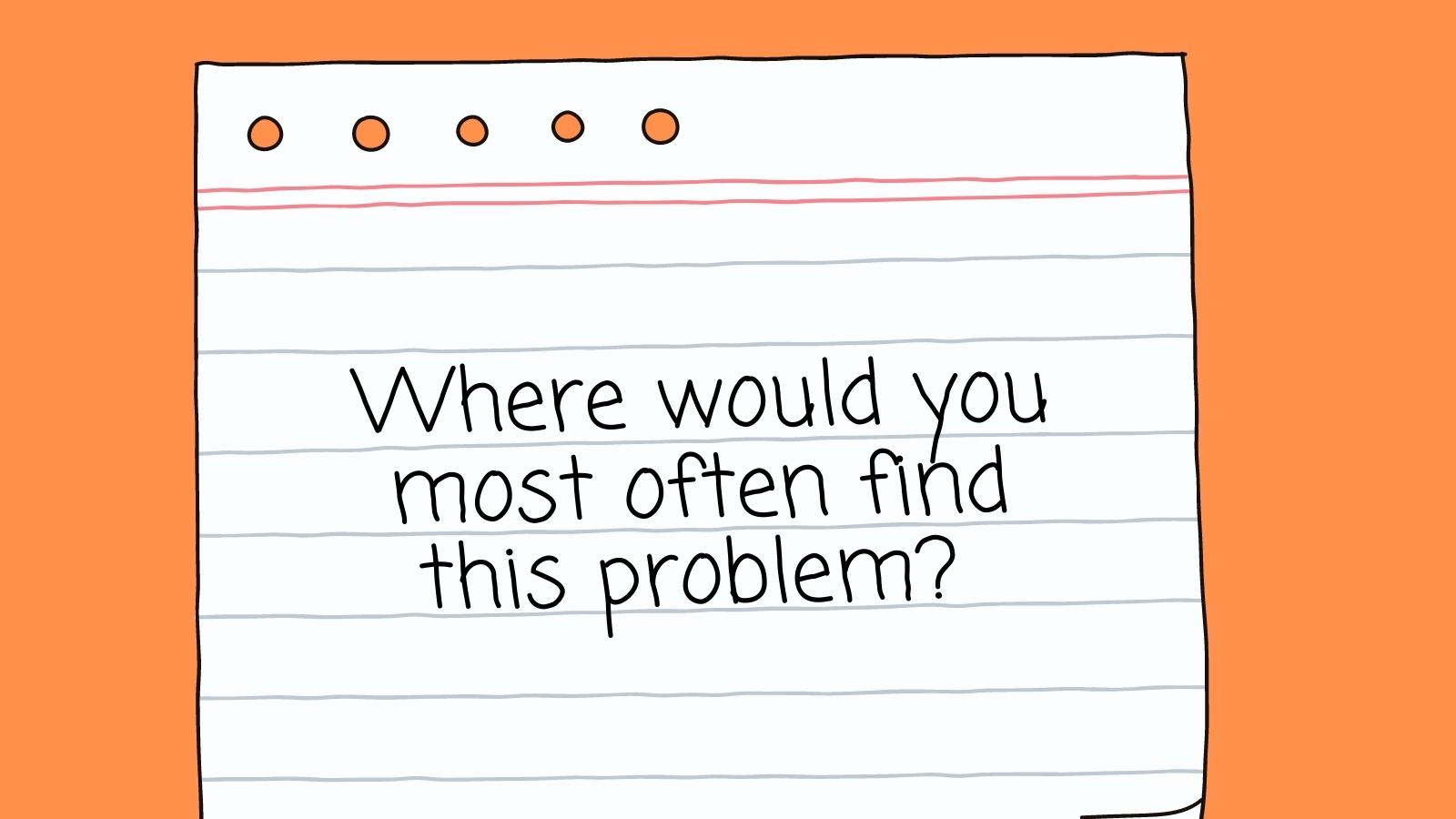
In an age of “fake news” claims and constant argument about pretty much any issue, critical thinking skills are key. Teach your students that it’s vital to ask questions about everything, but that it’s also important to ask the right sorts of questions. Students can use these critical thinking questions with fiction or nonfiction texts. They’re also useful when discussing important issues or trying to understand others’ motivations in general.
“Who” Critical Thinking Questions
Questions like these help students ponder who’s involved in a story and how the actions affect them. They’ll also consider who’s telling the tale and how reliable that narrator might be.
- Is the protagonist?
- Is the antagonist?
- Caused harm?
- Is harmed as a result?
- Was the most important character?
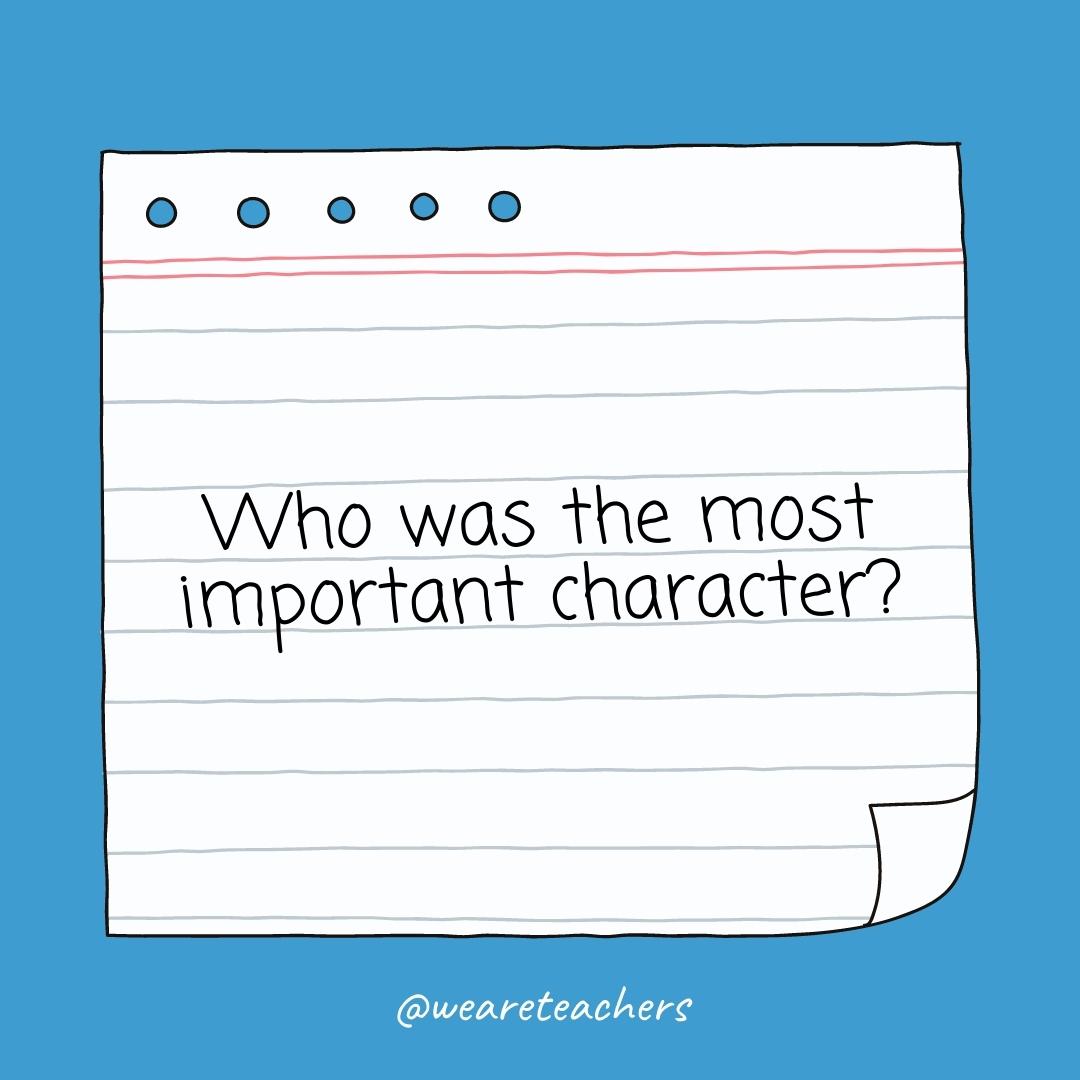
- Is responsible?
- Is most directly affected?
- Should have won?
- Will benefit?
- Would be affected by this?
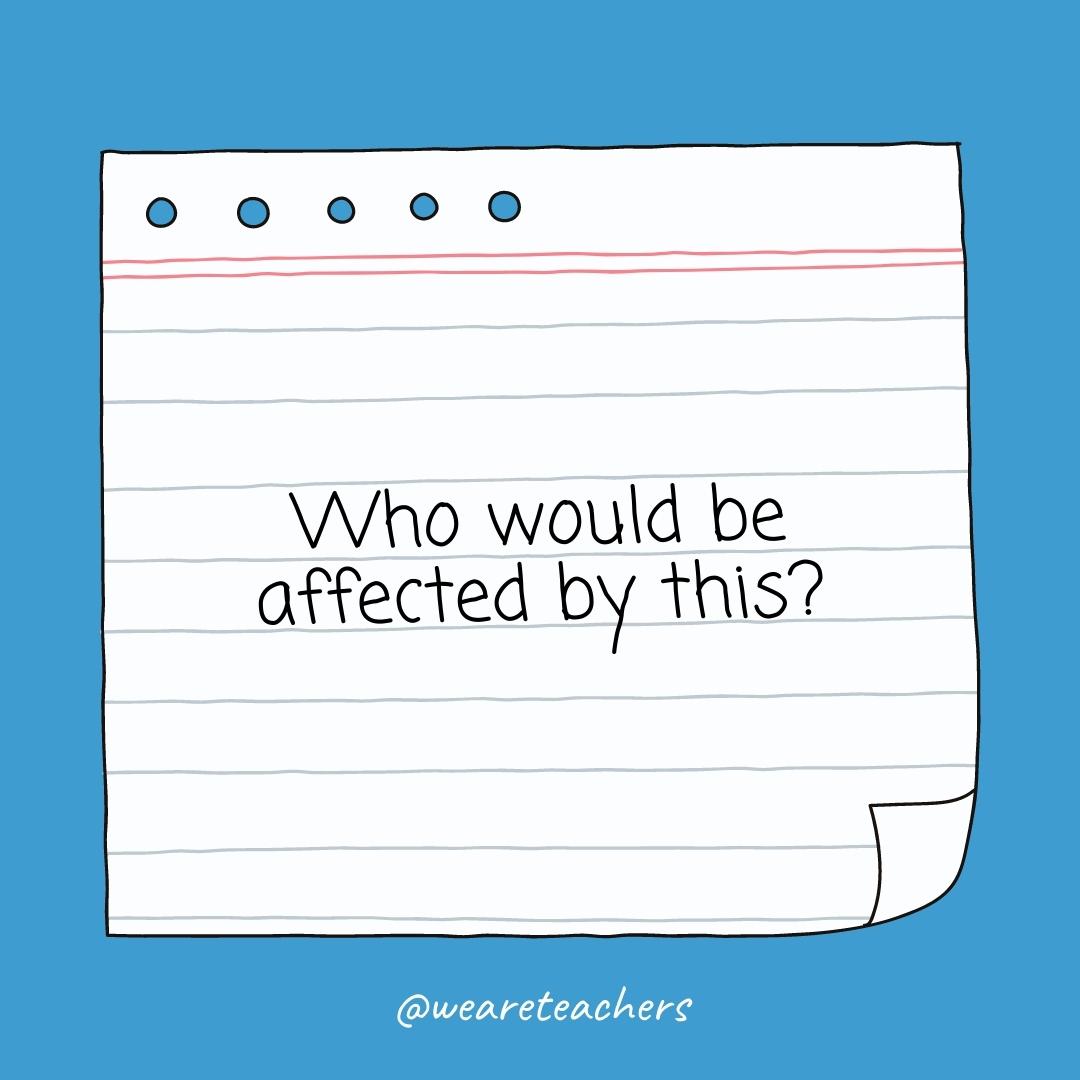
- Makes the decisions?
“What” Critical Thinking Questions
Ask questions that explore issues more deeply, including those that might not be directly answered in the text.
- Background information do I know or need to know?
- Is the main message?
- Are the defining characteristics?
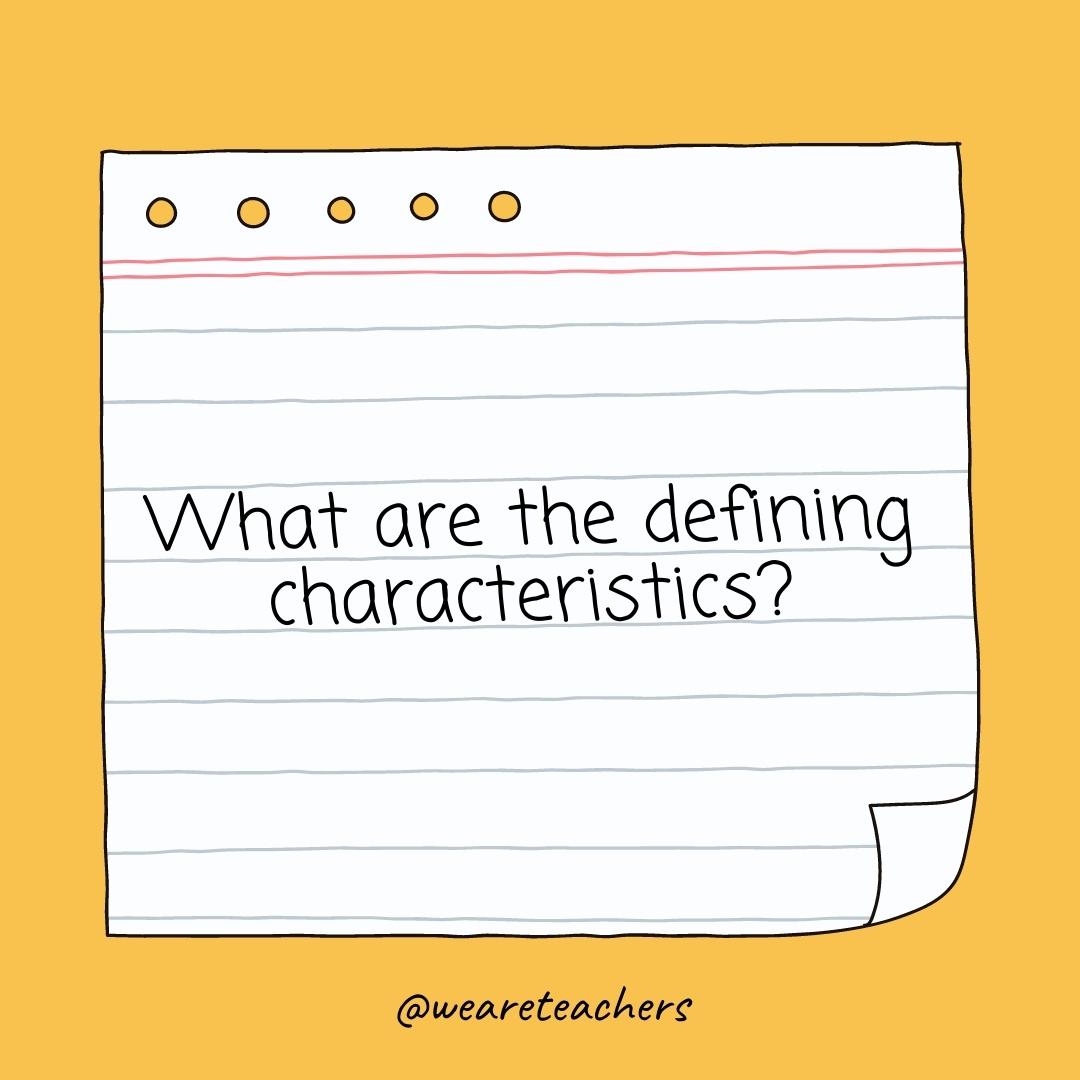
- Questions or concerns do I have?
- Don’t I understand?
- Evidence supports the author’s conclusion?
- Would it be like if … ?
- Could happen if … ?
- Other outcomes might have happened?
- Questions would you have asked?
- Would you ask the author about … ?
- Was the point of … ?
- Should have happened instead?
- Is that character’s motive?
- Else could have changed the whole story?
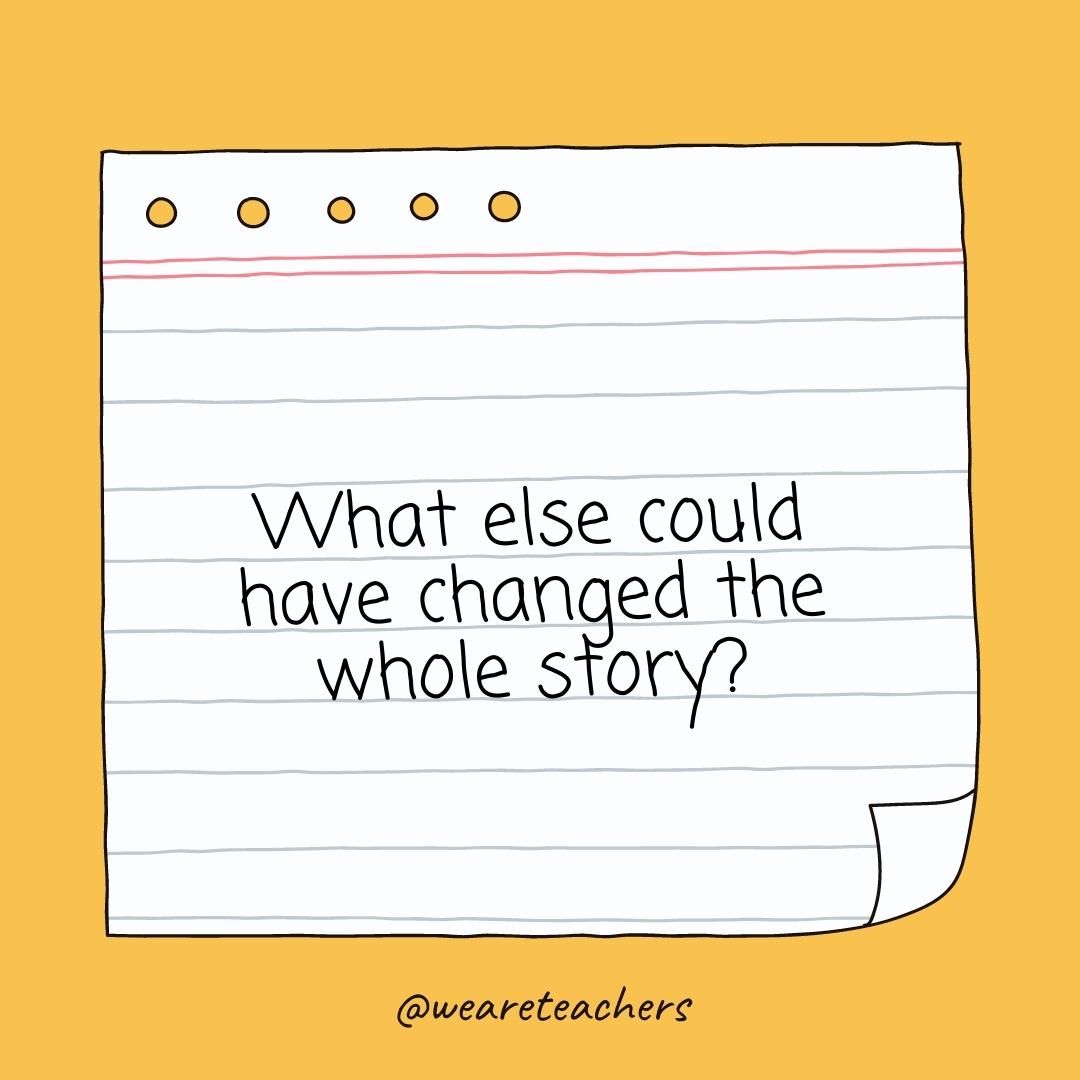
- Can you conclude?
- Would your position have been in that situation?
- Would happen if … ?
- Makes your position stronger?
- Was the turning point?
- Is the point of the question?
- Did it mean when … ?
- Is the other side of this argument?
- Was the purpose of … ?
- Does ______ mean?
- Is the problem you are trying to solve?
- Does the evidence say?
- Assumptions are you making?
- Is a better alternative?
- Are the strengths of the argument?
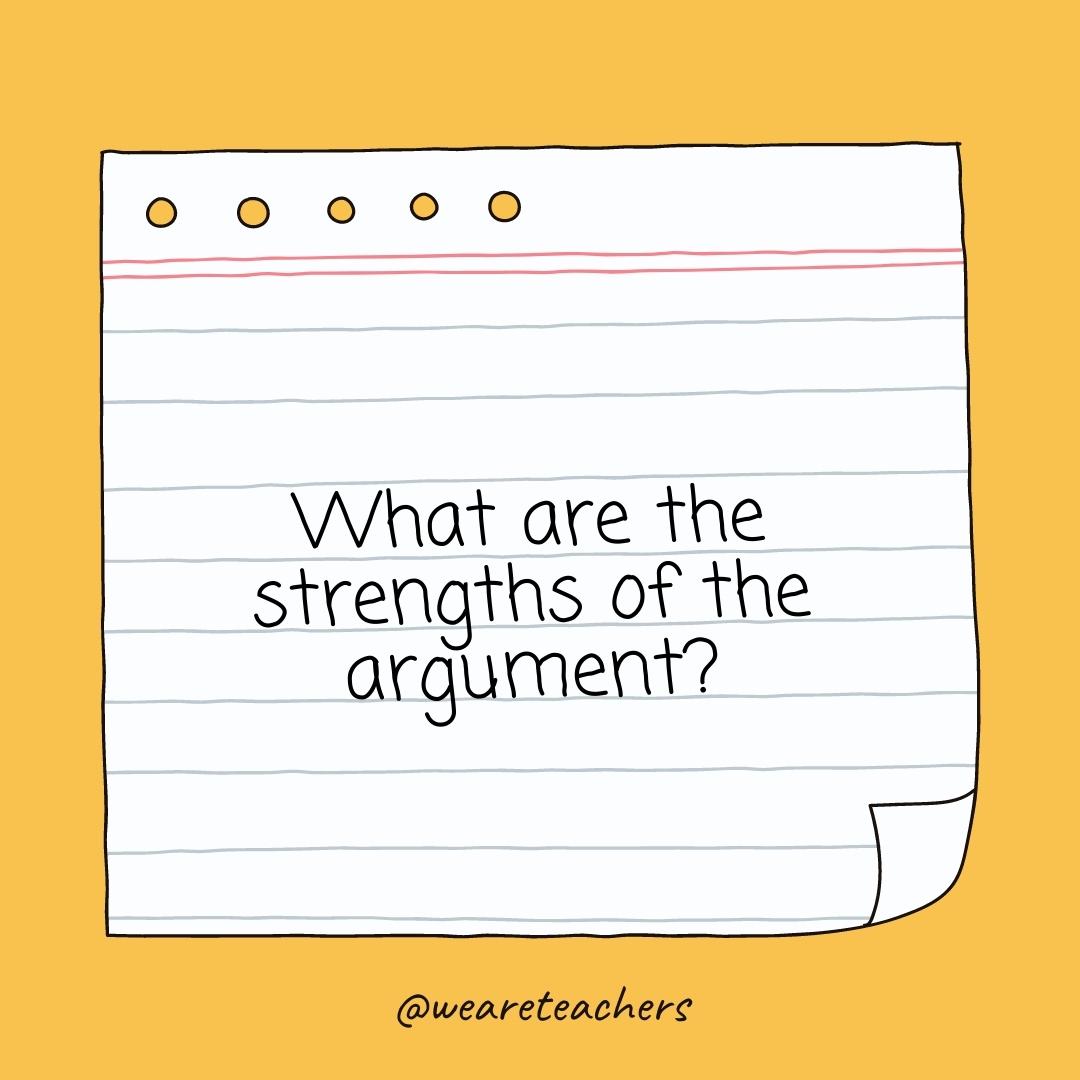
- Are the weaknesses of the argument?
- Is the difference between _______ and _______?
“Where” Critical Thinking Questions
Think about where the story is set and how it affects the actions. Plus, consider where and how you can learn more.
- Would this issue be a major problem?
- Are areas for improvement?
- Did the story change?
- Would you most often find this problem?

- Are there similar situations?
- Would you go to get answers to this problem?
- Can this be improved?
- Can you get more information?
- Will this idea take us?
“When” Critical Thinking Questions
Think about timing and the effect it has on the characters or people involved.
- Is this acceptable?
- Is this unacceptable?
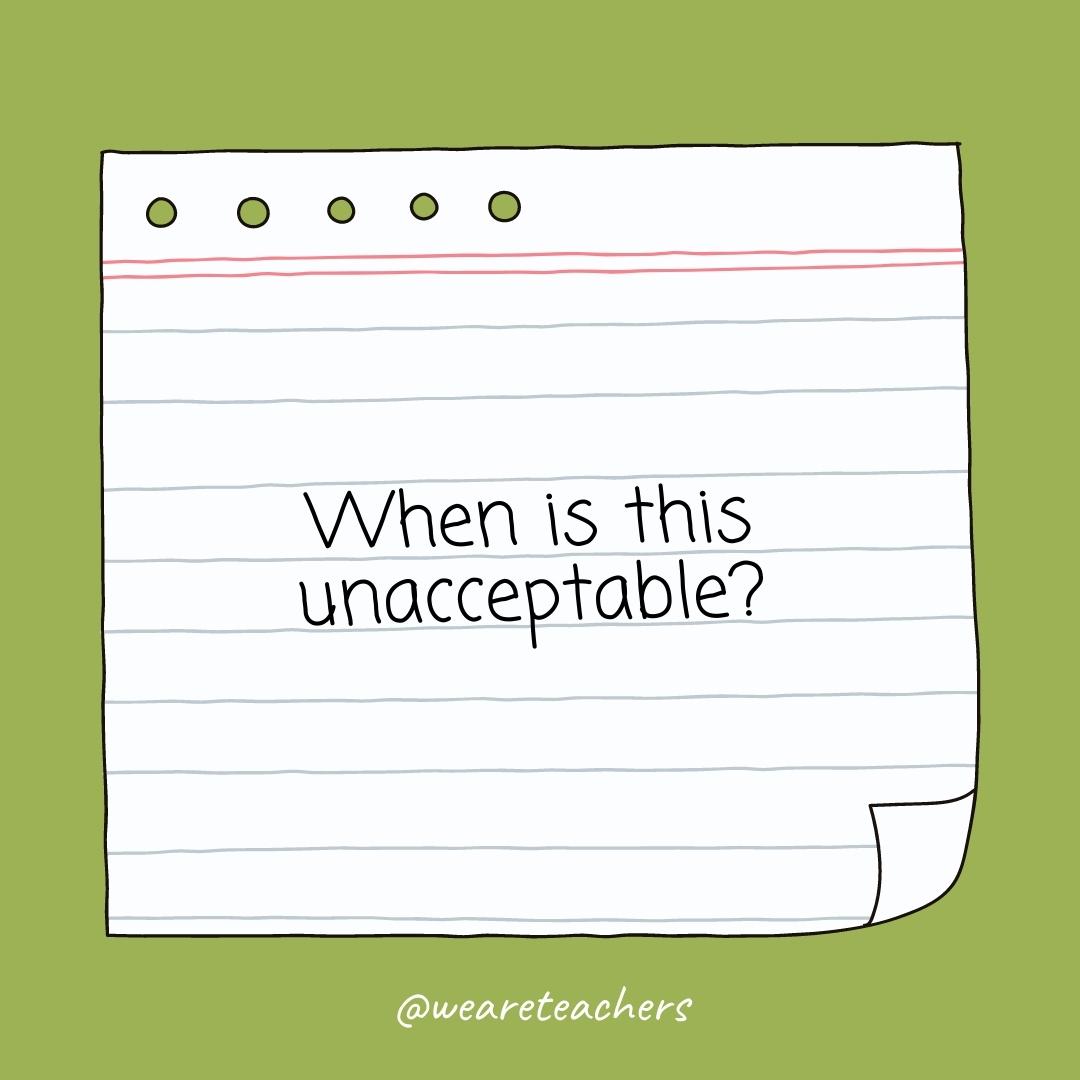
- Does this become a problem?
- Is the best time to take action?
- Will we be able to tell if it worked?
- Is it time to reassess?
- Should we ask for help?
- Is the best time to start?
- Is it time to stop?
- Would this benefit society?
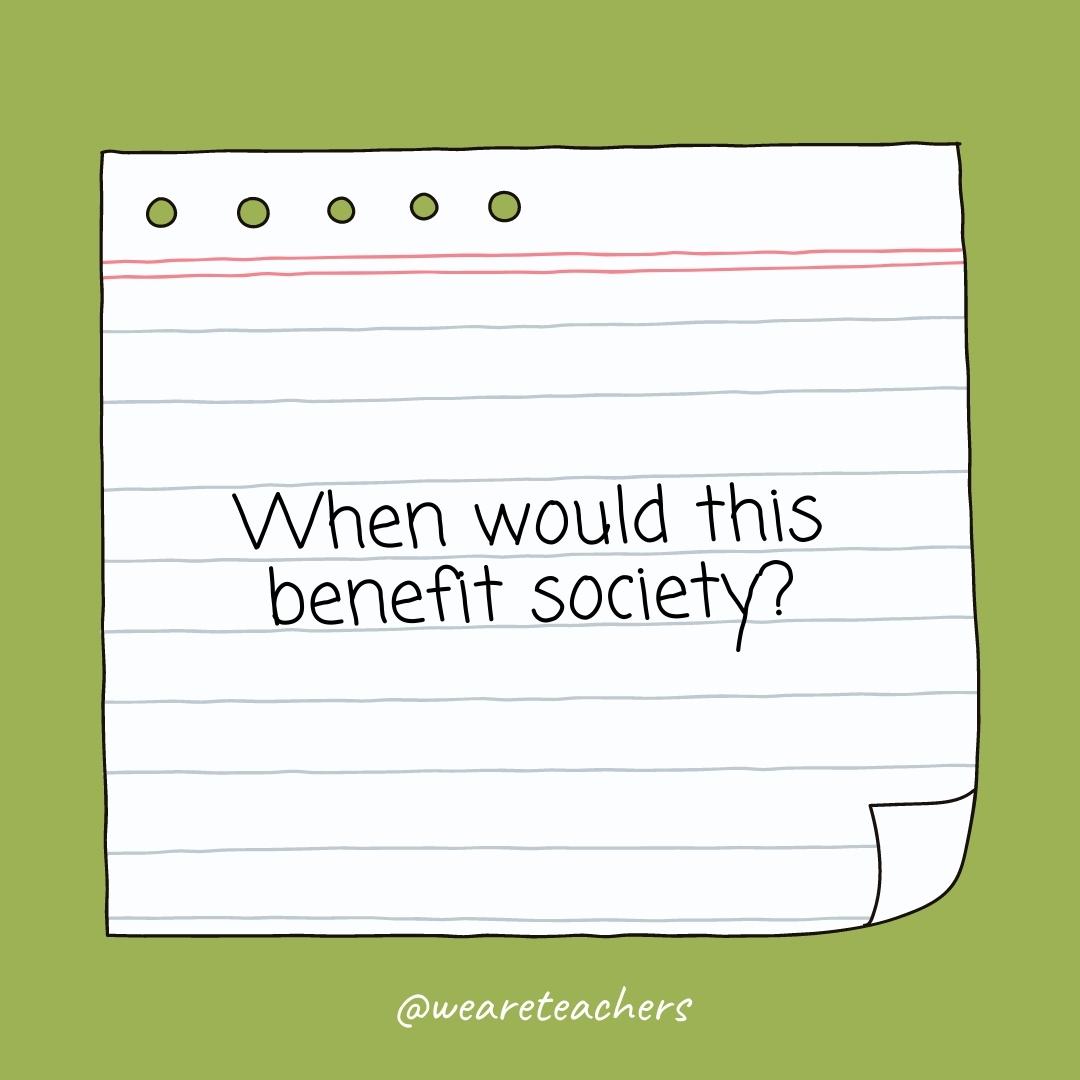
- Has this happened before?
“Why” Critical Thinking Questions
Asking “why” might be one of the most important parts of critical thinking. Exploring and understanding motivation helps develop empathy and make sense of difficult situations.
- Is _________ happening?
- Have we allowed this to happen?
- Should people care about this issue?
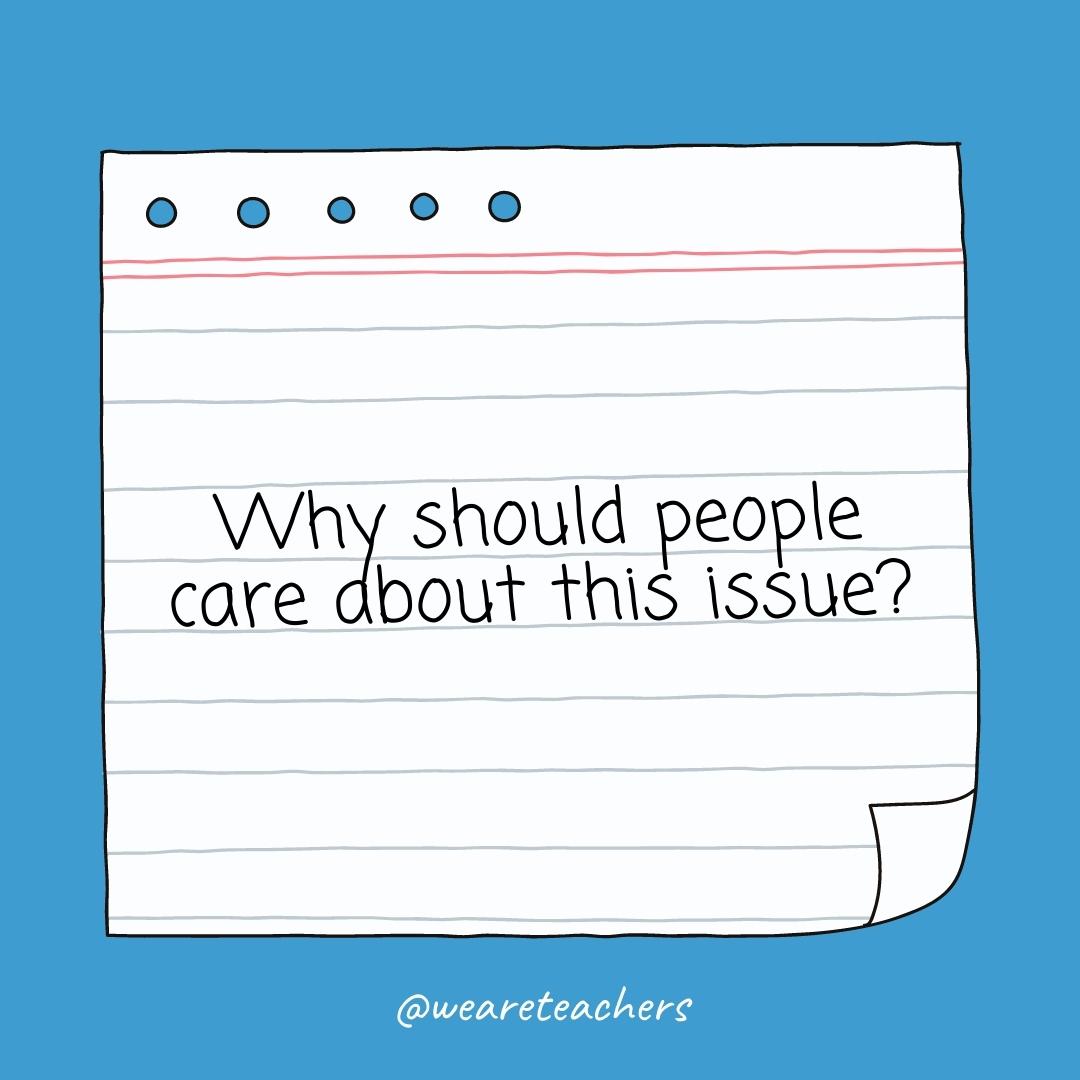
- Is this a problem?
- Did the character say … ?
- Did the character do … ?
- Is this relevant?
- Did the author write this?
- Did the author decide to … ?
- Is this important?
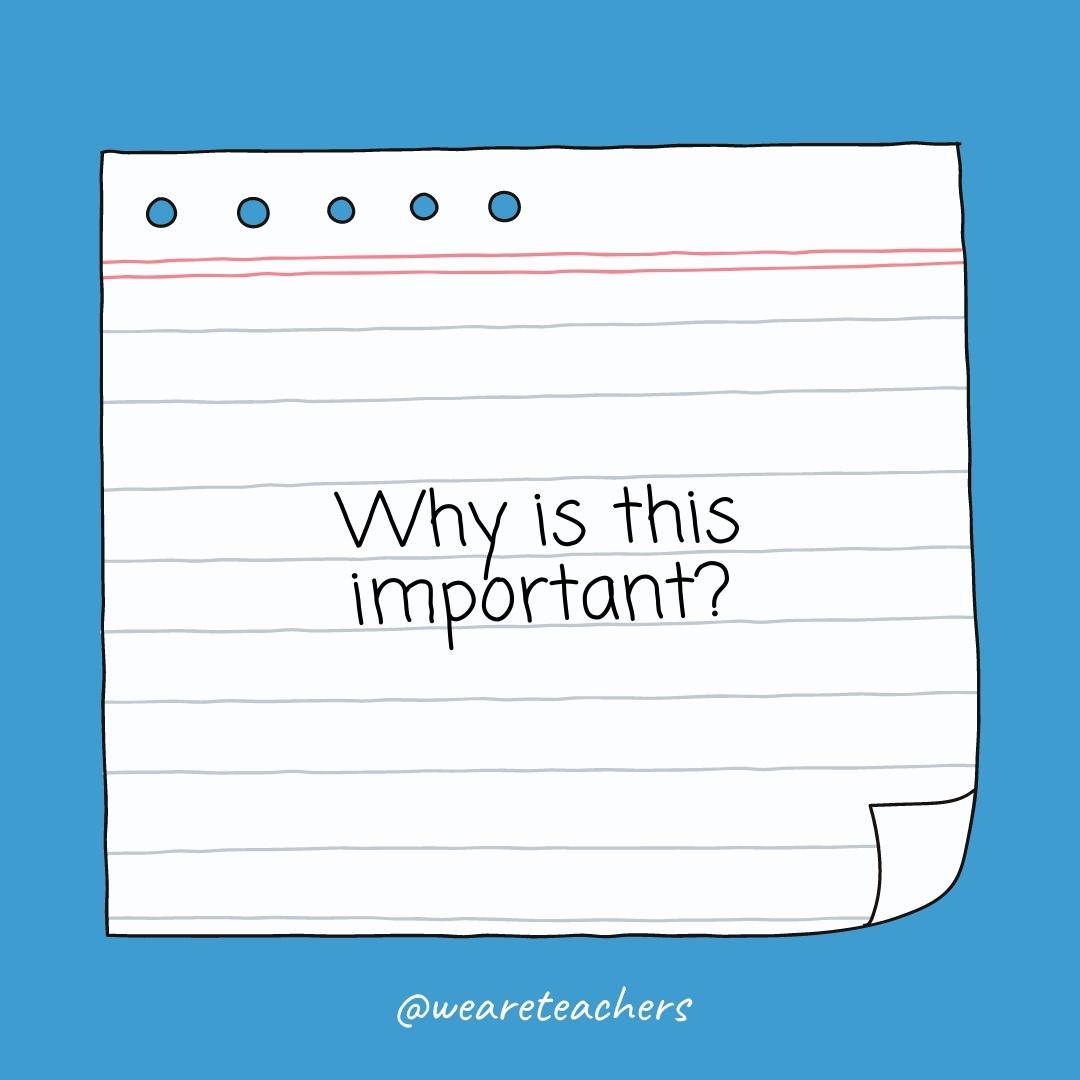
- Did that happen?
- Is it necessary?
- Do you think I (he, she, they) asked that question?
- Is that answer the best one?
- Do we need this today?
“How” Critical Thinking Questions
Use these questions to consider how things happen and whether change is possible.
- Do we know this is true?
- Does the language used affect the story?
- Would you solve … ?
- Is this different from other situations?
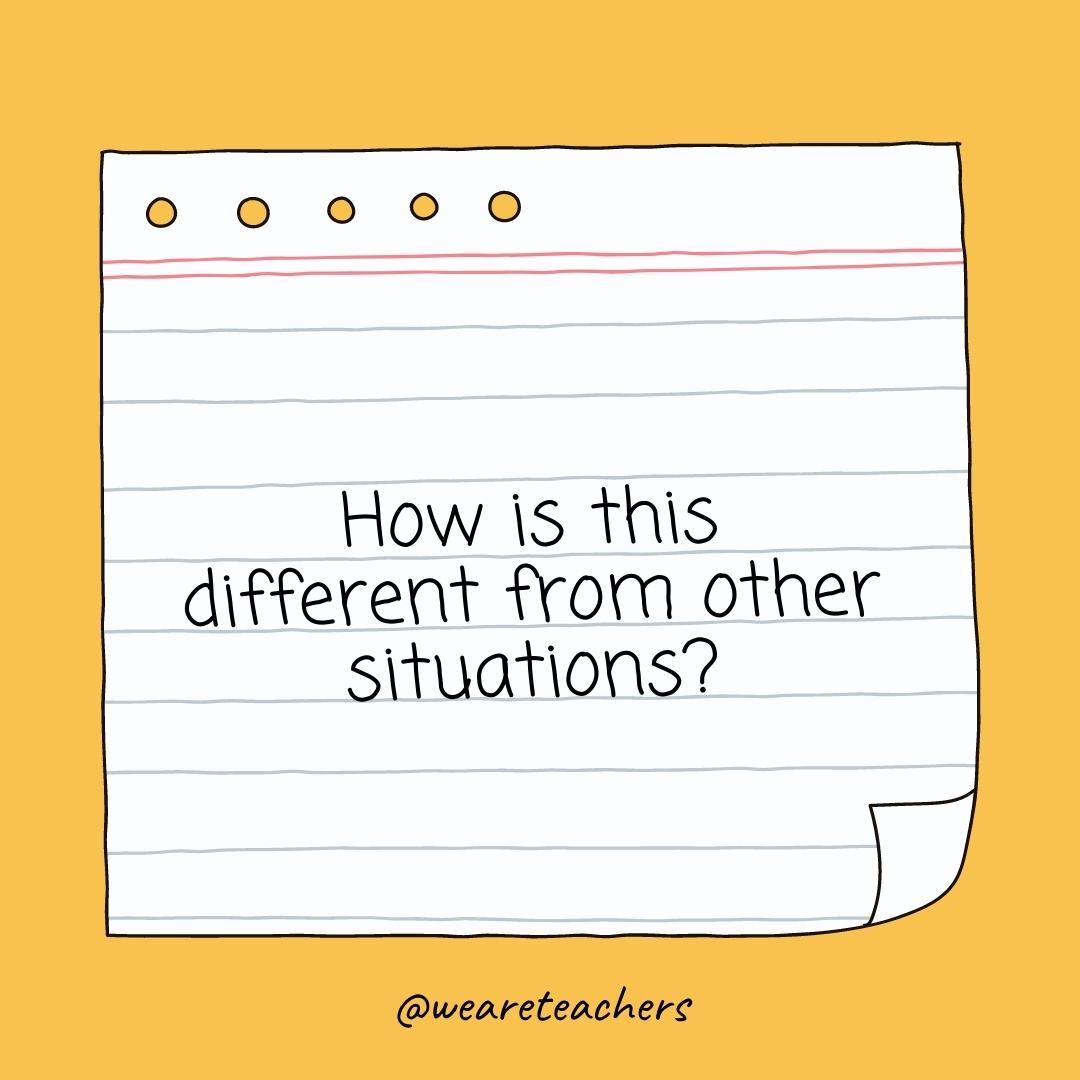
- Is this similar to … ?
- Would you use … ?
- Does the location affect the story?
- Could the story have ended differently?
- Does this work?
- Could this be harmful?
- Does this connect with what I already know?
- Else could this have been handled?
- Should they have responded?
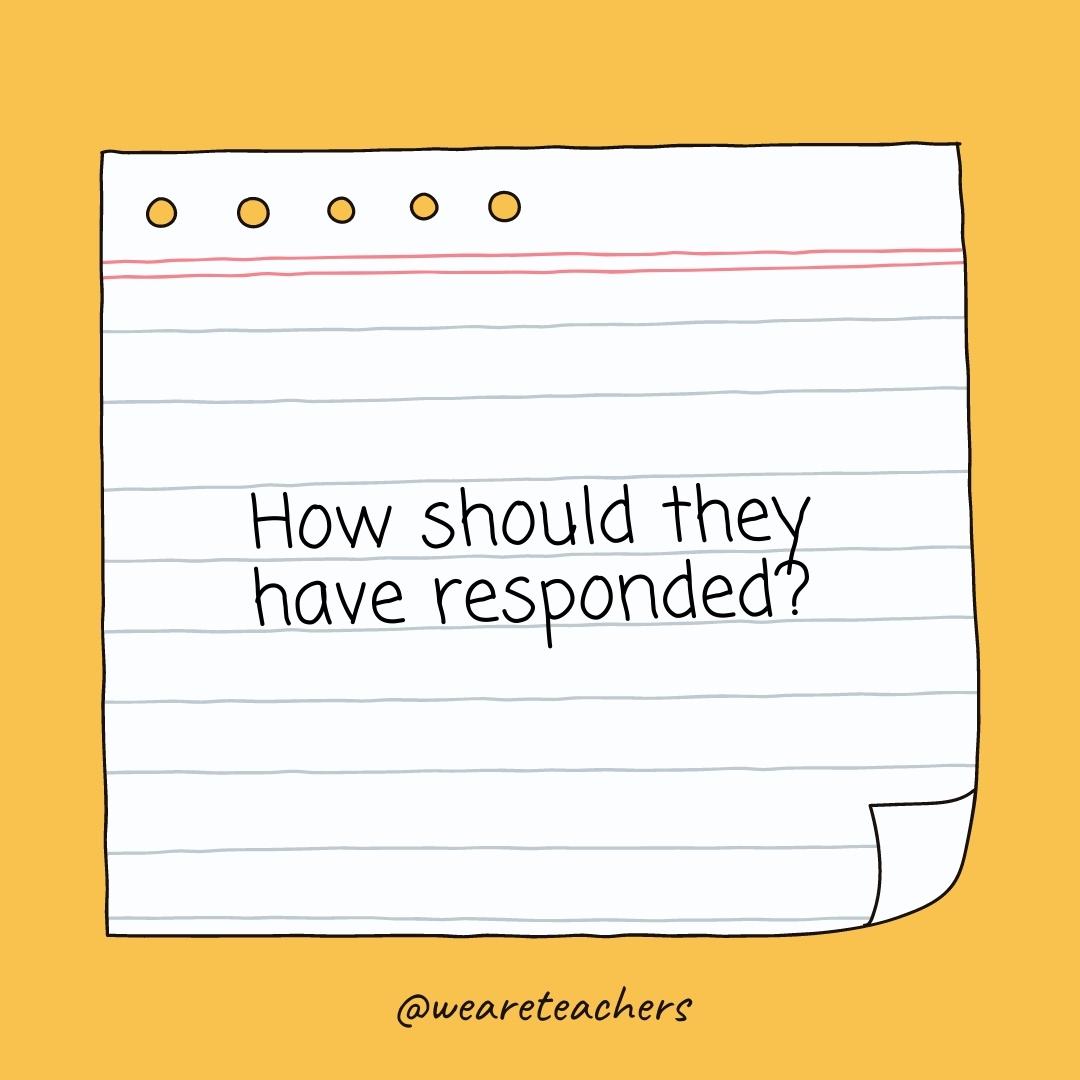
- Would you feel about … ?
- Does this change the outcome?
- Did you make that decision?
- Does this benefit you/others?
- Does this hurt you/others?
- Could this problem be avoided?
More Critical Thinking Questions
Here are more questions to help probe further and deepen understanding.
- Can you give me an example?
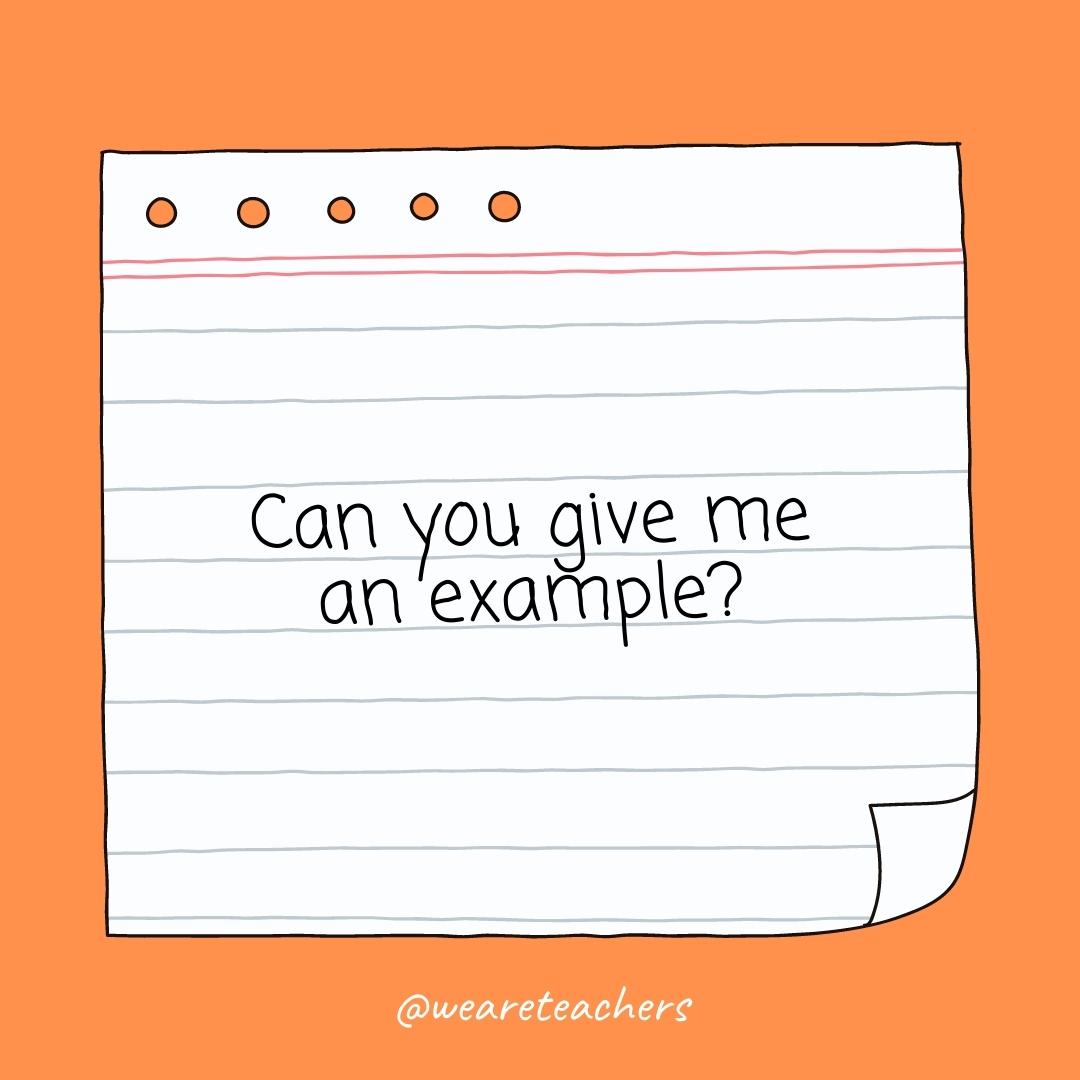
- Do you agree with … ?
- Can you compare this with … ?
- Can you defend the actions of … ?
- Could this be interpreted differently?
- Is the narrator reliable?
- Does it seem too good to be true?
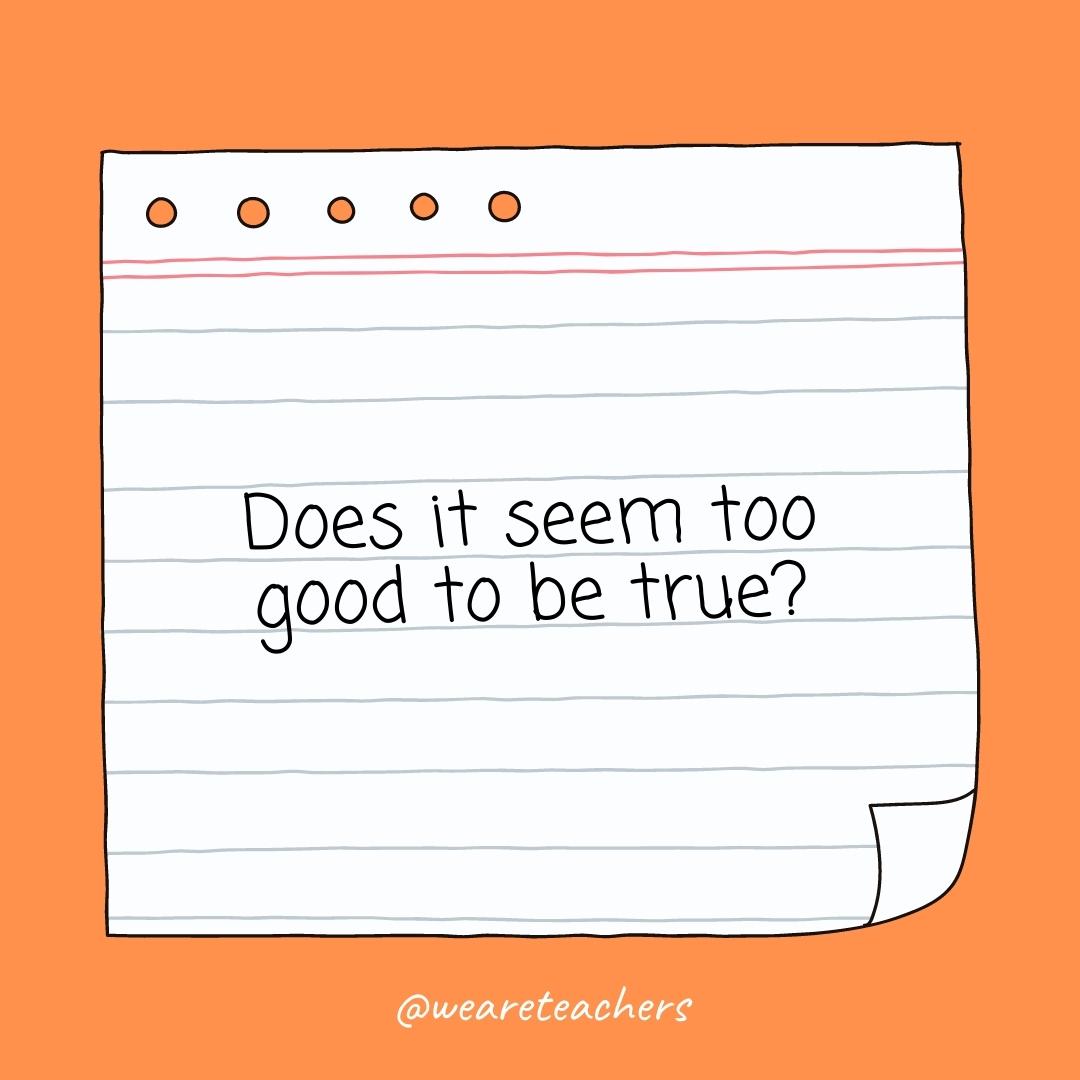
- Is ______ a fact or an opinion?
What are your favorite critical thinking questions? Come exchange ideas on the WeAreTeachers HELPLINE group on Facebook .
Plus, check out 10 tips for teaching kids to be awesome critical thinkers ., you might also like.
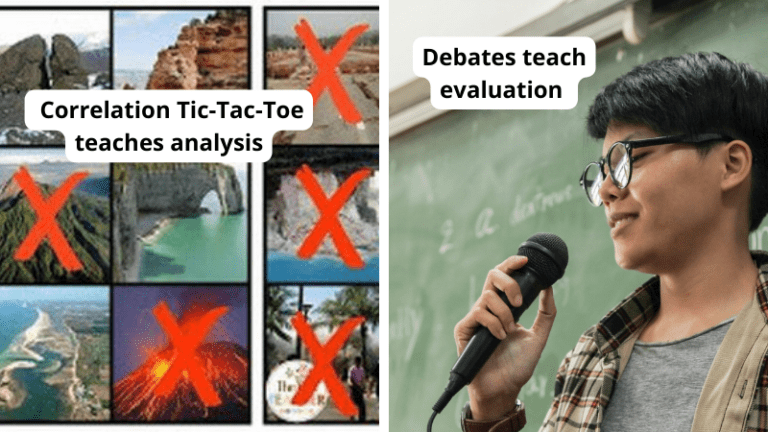
5 Critical Thinking Skills Every Kid Needs To Learn (And How To Teach Them)
Teach them to thoughtfully question the world around them. Continue Reading
Copyright © 2024. All rights reserved. 5335 Gate Parkway, Jacksonville, FL 32256
50+ critical thinking questions for students

As the demand for critical thinkers increases, educators must prioritize developing students’ critical thinking skills. And, as critical thinking is a transferable skill, you can incorporate these critical thinking questions throughout the curriculum and across subjects!
At Kialo Edu , we’re committed to helping you nurture critical thinking in your students through engaging written discussions . We’ve carefully crafted a list of critical thinking questions designed to challenge students and empower them to navigate complex problems with confidence and creativity. Kialo is completely free and always will be , so why not try these questions with your students to build their critical thinking skills through discussion?
What is critical thinking?
Critical thinking is the skill of clear, rational thought. Critical thinkers go beyond accepting information at face value; they interpret and analyze information to form their own evidence-based conclusions.
They also approach questions from multiple perspectives , actively seek out opposing viewpoints, and challenge their own assumptions.
Why do students need to learn critical thinking?
Critical thinking enables students to articulate their perspective, make informed decisions, and solve problems effectively, thereby supporting their civic engagement .
Moreover, in the digital age, students can leverage critical thinking to question biases and assumptions and employ evidence-based reasoning to combat mis- and disinformation. Ultimately, mastering critical thinking equips students to succeed personally, academically, and professionally.
By using critical thinking questions throughout lessons, you can help students build a toolkit of critical thinking skills that they can apply to tackle complex issues now and in the future.
Critical thinking questions to evaluate evidence
In today’s information-rich world, students must learn to critically evaluate the evidence they use to support their viewpoints and make informed decisions. Applying these questions in a Kialo discussion will guide students to select the strongest sources to support their claims.
- How strong is the evidence supporting your argument?
- Are there any counterexamples?
- Are there opposing viewpoints that challenge your evidence?
- How have you ensured the accuracy of your evidence?
- How does this evidence relate to the argument?
- What are the limitations of this evidence?
- Can you summarize the main evidence used to support your argument?
- How do experts in this field view your evidence?
- What might the consequences be if this evidence is flawed?
- Are the inferences being made from the data legitimate?
- Why was this methodology used?
- Was an appropriate-sized sample used?
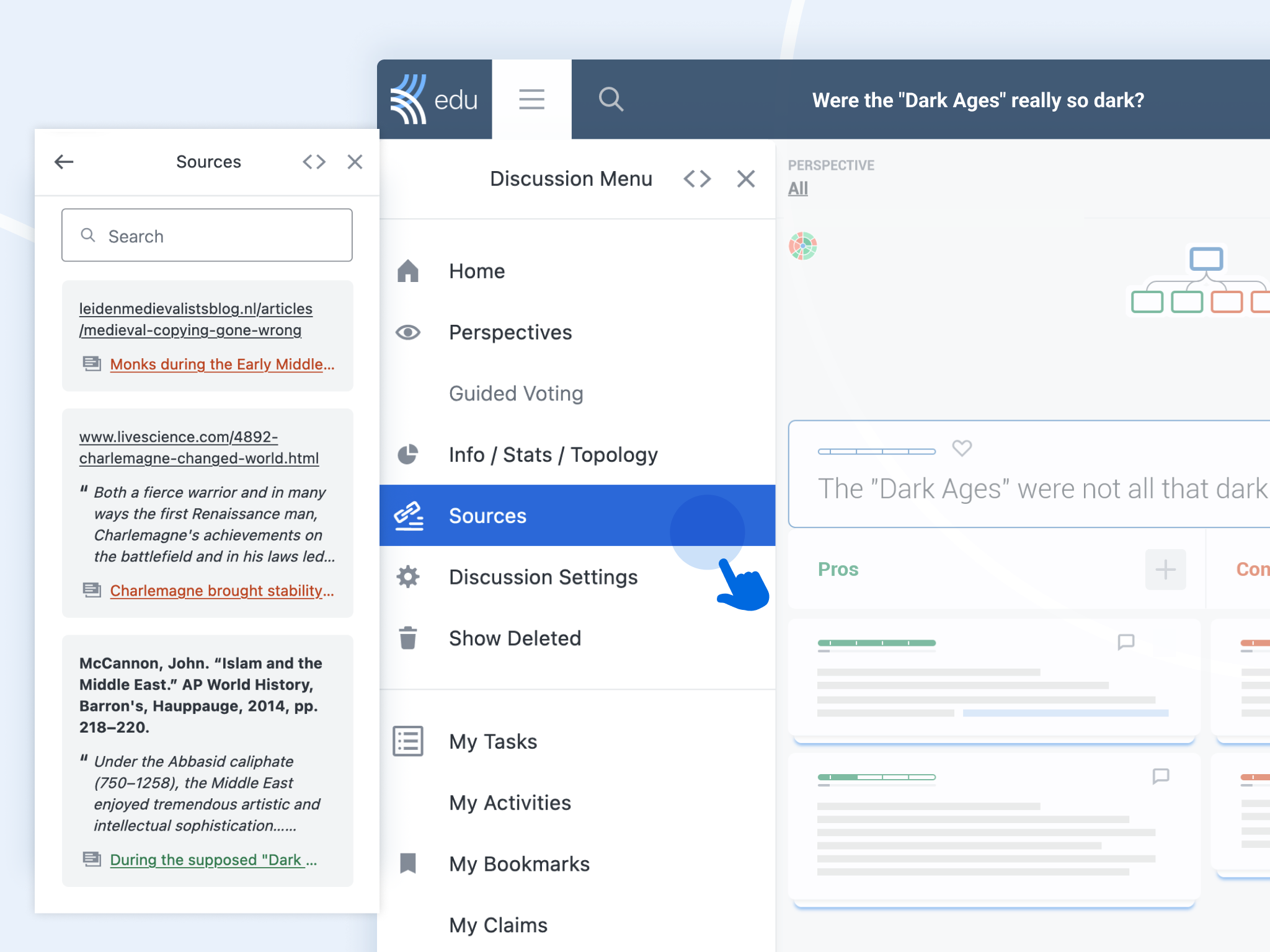
Critical thinking questions to challenge assumptions
Using critical thinking questions to challenge assumptions teaches students to critically examine their beliefs and thought processes. This helps them identify biases and gaps in their reasoning. Kialo’s “sunburst” mini-map can help support students in visualizing the overall discussion to check that they have presented a balanced overview.
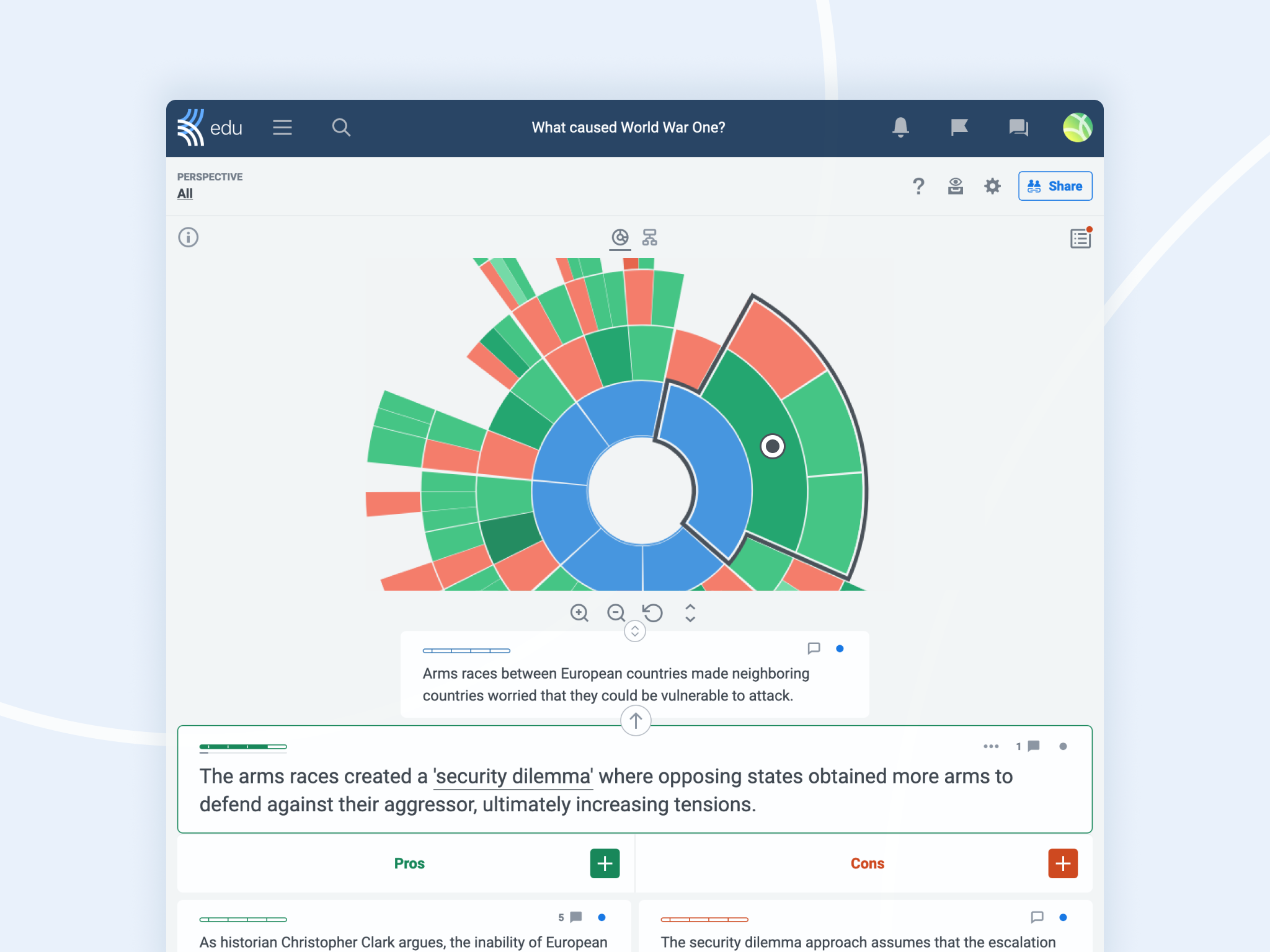
- Can you describe the assumptions you are making?
- Why do you believe this is a valid assumption?
- What if this assumption is incorrect?
- Can you make an alternative assumption?
- What evidence supports your assumption?
- What would happen if we questioned this assumption?
- How does this assumption influence your argument?
- Are there any biases influencing your assumption?
- What is the basis for your assumption?
- What are the biases or assumptions behind the information?
- How have biases or assumptions affected the framing of the problem?
Critical thinking questions to analyze perspectives
- Can you explain any alternative perspectives on this issue?
- How might someone with a different background interpret this?
- How strong are the opposing arguments?
- How might culture influence perspectives on this topic?
- How would a skeptic respond to your argument?
- How might different groups of people view this issue?
- How does historical context influence this perspective?
- How might personal experiences have shaped this perspective?
- What are the implications of accepting this perspective?
Critical thinking questions to assess the validity of arguments
Kialo discussions display arguments visually in a branching framework, so students can easily assess the validity of pros and cons and improve their own arguments. Students can even use Voting and comments to evaluate claims!
- How did you select the evidence to evaluate this argument?
- How can you assess the reliability of this evidence?
- What are the strengths and weaknesses of this argument?
- How does this argument compare to others on the same issue?
- How might biases affect the evaluation of this issue?
- What benchmarks can we use to assess this claim?
- Is the reasoning logical and coherent?
- How well does this argument address counterarguments?
- Should we accept this position?
- How can you assess the value of this argument?
- Why is argument A better than argument B?
Critical thinking questions to explore consequences
- What if we had unlimited resources to solve this problem?
- How could we avoid this problem in the future?
- What if we approached the problem from a different angle?
- How would the outcome differ if we changed one variable?
- What might be the consequences or outcomes of this?
- How might this affect other outcomes?
- How might different stakeholders be affected?
- What are the long-term implications of this?
- What are the associated risks?
- Might there be any unintended consequences?
- How might this impact future developments?
- What would happen if this solution were implemented?
- How would you adapt this to create a different outcome?
Critical thinking questions to examine synthesis
- How do these ideas connect to our learning?
- How do these ideas connect to each other?
- Can you combine these viewpoints into a new perspective?
- Can you identify patterns among the different arguments?
- How can we integrate this new information into our understanding?
- What new conclusions can we draw from this evidence?
- How can we incorporate multiple perspectives in our solution?
- What is the overarching theme in these arguments?
- How might these ideas collectively influence future research?
- How do these findings relate to other research studies?
Critical thinking questions to prompt reflection
Using critical thinking questions for reflection not only gives students deeper insights into their own learning, but also fosters the development of key social-emotional learning skills like self-awareness, decision-making, and resilience.
- What did you learn from this?
- How has your perspective changed as a result of this evidence?
- What obstacles did you encounter while developing your argument?
- How do your personal beliefs influence your analysis?
- Can we identify any unanswered questions?
- How would you apply what you’ve learned to this situation?
- What insights have you gained about your own thinking?
- How do your personal experiences shape your understanding?
Use these critical thinking questions throughout your lessons to arm students with critical thinking skills for future success! Start by heading over to Kialo Edu’s Topic Library , where you’ll find hundreds of ready-made discussion prompts searchable by age and curriculum subject to maximize participation and build students’ critical thinking abilities.
We’d love to add your ideas to our inspiring list of critical thinking questions. Contact us at [email protected] or on social media.
Want to try Kialo Edu with your class?
Use Kialo Edu to have thoughtful classroom discussions and train students’ argumentation and critical thinking skills — completely free!

IMAGES
COMMENTS
Jun 6, 2022 · Critical thinking questions are inquiries that help you think rationally and clearly by understanding the link between different facts or ideas. These questions create a seemingly endless learning process that lets you critique, evaluate, and develop a depth of knowledge about a given subject.
May 22, 2024 · Here are some examples of critical questions that you can use to stimulate students’ critical thinking skills, encouraging them to analyze, evaluate, and create new ideas based on what they’ve learned.
Asking the right questions can empower you to evaluate information effectively and make better decisions. Whether it’s assessing news articles, evaluating work presentations, or deciding on personal matters, these questions will guide your thought process.
Critical thinking questions include, 'Why is this important? What are the causes and effects of this? How do we know if this is true?"
200+ critical thinking questions to ask when you're presented with a claim, reading a book, listening to a podcast, watching TV or Youtube, watching the news, in an argument or debate, questions to spot lies and scams
We'll navigate through specific examples as we proceed, offering insights into effective strategies for tackling critical thinking questions. Prepare to embark on a journey of intellectual sharpening, where each practice question refines your analytical prowess for the challenges ahead.
Varying question stems can sustain engagement and promote critical thinking. The timing, sequence and clarity of questions you ask students can be as important as the type of question you ask. The table below is organized to help formulate questions provoking gradually higher levels of thinking. What do we already know about ... ?
Nov 9, 2021 · These fun critical thinking questions are what you should be asking if you want to learn more and challenge your own beliefs. Questioning what you’ve read, what you’ve learnt and your own preconceptions is a useful way to remove your own ignorance on many topics.
Sep 14, 2022 · Strong critical thinking skills are key. Encourage careful reading and deeper connections with this list of critical thinking questions. Use these during your next book discussion.
Sep 18, 2024 · Explore our list of critical thinking questions for students. Use them across subjects and try them in a Kialo discussion to engage your students!